Honoring legacy of the UpStairs Lounge
50 years ago, 32 gay men died in arson attack on New Orleans bar, page 10















































50 years ago, 32 gay men died in arson attack on New Orleans bar, page 10















































ADDRESS PO Box 53352

Washington DC 20009
PHONE
202-747-2077
E-MAIL news@washblade.com
INTERNET washingtonblade.com
PUBLISHED BY Brown Naff Pitts Omnimedia, Inc.
PUBLISHER
LYNNE J. BROWN lbrown@washblade.com ext. 8075
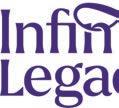
EDITORIAL
EDITOR
KEVIN NAFF knaff@washblade.com ext. 8088 SR. NEWS REPORTER LOU CHIBBARO JR. lchibbaro@washblade.com ext. 8079

WHITE HOUSE CORRESPONDENT
CHRIS KANE ckane@washblade.com extg 8083
INTERNATIONAL NEWS EDITOR
MICHAEL K. LAVERS mlavers@washblade.com ext. 8093
POP CULTURE REPORTER
JOHN PAUL KING
PHOTO EDITOR
MICHAEL KEY mkey@washblade.com ext 8084

WRITERS
CONTRIBUTING
DANIEL ITAI, EDICIÓN CIENTONCE, QUORUM, WDG, STEPHANIE MONDRAGÓN, ISAAC AMEND , TINASHE CHINGARANDE, DUNIA ORELLANA, REPORTAR SIN MIEDO, PARKER PURIFOY, PETER ROSENSTEIN, MARK LEE, LATEEFAH WILLIAMS, KATE CLINTON, KATHI WOLFE, ERNESTO VALLE, YARIEL VALDÉS GONZÁLEZ, LYNARE ROBBINS, PHILIP VAN SLOOTEN, KATLEGO K. KOLANYANE-KESUPILE, KAELA ROEDER, TREMENDA NOTA, ALBERTO J. VALENTÍN, MAYKEL GONZÁLEZ VIVERO, ORGULLO LGBT. CO, ESTEBAN GUZMAN, ANDRÉS I. JOVÉ RODRÍGUEZ, WINTER HAWK CREATIVE DESIGN/PRODUCTION AZERCREATIVE.COM
SALES & ADMINISTRATION
DIRECTOR OF SALES & MARKETING











STEPHEN RUTGERS srutgers@washblade.com ext. 8077


SR. ACCT. EXECUTIVE BRIAN PITTS
bpitts@washblade.com ext. 8089
CLASSIFIED ADVERTISING/ADMINISTRATION


PHILLIP G. ROCKSTROH prockstroh@washblade.com ext. 8092
NATIONAL ADVERTISING
RIVENDELL MEDIA
212-242-6863; sales@rivendellmedia.com
For distribution, contact Lynne Brown at 202-747-2077, ext. 8075. Distributed by Southwest Distribution Inc.

All material in the Washington Blade is protected by federal copyright law and may not be reproduced without the written consent of the Washington Blade. The sexual orientation of advertisers, photographers, writers and cartoonists published herein is neither inferred nor implied. The appearance of names or pictorial representation does not necessarily indicate the sexual orientation of that person or persons. Although the Washington Blade is supported by many fine advertisers, we cannot accept responsibility for claims made by advertisers. Unsolicited editorial material is accepted by the Washington Blade, but the paper cannot take responsibility for its return. The editors reserve the right to accept, reject or edit any submission. A single copy of the Washington Blade is available from authorized distribution points, to any individual within a 50-mile radius of Washington, D.C. Multiple copies are available from the Washington Blade office only. Call for rates. If you are unable to get to a convenient free distribution point, you may receive a 52-week mailed subscription for $195 per year or $5.00 per single issue. Checks or credit card orders can be sent to Phil Rockstroh at prockstroh@ washblade.com. Postmaster: Send address changes to the Washington Blade, PO BOX 53352 Washington, DC 20009. The Washington Blade is published weekly, on Friday, by Brown Naff Pitts Omnimedia, Inc. Rates for businesses/institutions are $450 per year. Periodical postage paid at Washington, D.C., and additional mailing offices. Editorial positions of the Washington Blade are expressed in editorials and in editors’ notes as determined by the paper’s editors. Other opinions are those of the writers and do not necessarily represent the opinion of the Washington Blade or its staff. To submit a letter or commentary: Letters should be fewer than 400 words; commentaries should be fewer than 750 words. Submissions may be edited for content and length, and must include a name, address and phone number for verification. Send submissions by e-mail to knaff@ washblade.com.


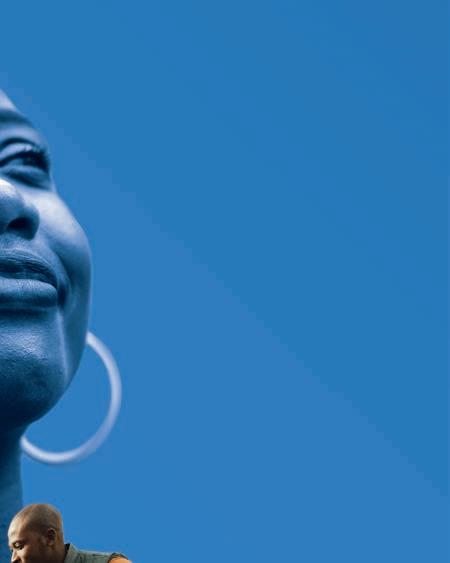



The Comings & Goings column is about sharing the professional successes of our community. We want to recognize those landing new jobs, new clients for their business, joining boards of organizations and other achievements. Please share your successes with us at: comingsandgoings@washblade.com
The Comings & Goings column also invites LGBTQ+ college students to share their successes with us. If you have been elected to a student government position, gotten an exciting internship, or are graduating and beginning your career with a great job, let us know so we can share your success.
Congratulations to Kevin McDuffie on the opening of the McWilliams|Ballard real estate office in the CAMP Courtyard, 39 Baltimore Ave. in Rehoboth Beach, Del. McDuffie is Managing Broker, Senior Vice President. Upon opening the office he said, “We are proud of all our real estate profes-
sionals who will be serving the people of Rehoboth Beach and Delaware.” He went on to say, “For over 27 years, McWilliams|Ballard has been the industry leader in home sales and marketing, specializing in condominiums, townhomes, and mixed-use communities across the Washington Metro Area and beyond reaching 13 states nationwide. Our firm’s unique suite of services and vast experience offers buyers and sellers alike the advantage of data-driven decisions along the way to finding your next home.”
McDuffie himself has more than 30 years as an industry top producer in new home sales and general brokerage. He previously worked as a senior manager at a top office for Realogy Holdings Corporation; senior managing broker, Coldwell Banker; and served on the board of the Greater Capital Area Association of Realtors.
One of the agents working out of the CAMP courtyard office is Jessie Hayes who has more than 20 years of sales
Fairfax County Public Schools Pride, a pro-LGBTQ activist organization, held a rally outside of the Fairfax County School Board meeting at Luther Jackson Middle School on June 15. The rally was held to call attention to the mounting racist and anti-LGBTQ incidents reported in Northern Virginia schools this year.
Approximately 50 community activists participated in the peaceful FCPS Pride rally. Speakers at the event included state Del. Marcus Simon (D-Falls Church); Robert Rigby, FCPS Pride president; David Broder, president of the Service Employees International Union Virginia Local 512; and David Walrod, educator and president of the Fairfax County Association of Teachers.
“We’ve got a Pride flag burning at one school, anti-Semitic symbols at another school,” Rigby warned the crowd. “Homophobic and anti-trans remarks written on another school.
Racist comments written on another school. So these are bright and vivid symbols of hate brought during this season. But students and parents and staff are here to say that these sorts of things are unwelcome in our schools.”
Rigby referred to anti-LGBTQ reported incidents occurring at Falls Church and West Potomac High Schools this year as well as other hate incidents against racial and ethnic groups.
The speakers and activists at the rally were generally supportive of the Fairfax County School Board, but called for vigilance against acts of hate.
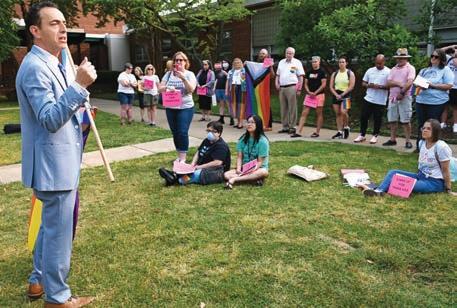
“We are not doing enough,” admonished Rigby. “I call on the school board to be leaders: to stand up on their bully pulpit to say to our students, ‘you are welcome here unabashedly, unashamedly. We love you for who you are.’”
“As educators it is our job to make sure that every child comes into our classroom and feels safe,” Walrod, a special
and banking experience. He said of McDuffie, “He has a drive for real estate. He has a passion for finding people the right product that suits their needs and wants.”
education teacher at Lake Braddock Secondary School, said. Walrod concluded, “To all of our students, we see you, we welcome you, we want you to belong here.”
MICHAELU.S. Rep. Glenn Ivey (D-Md.), whose district includes most of Prince George’s County, is one of the lead organizers of an LGBTQ Pride Resource Fair scheduled for June 24 at the Oakcrest Community Center in Capitol Heights.
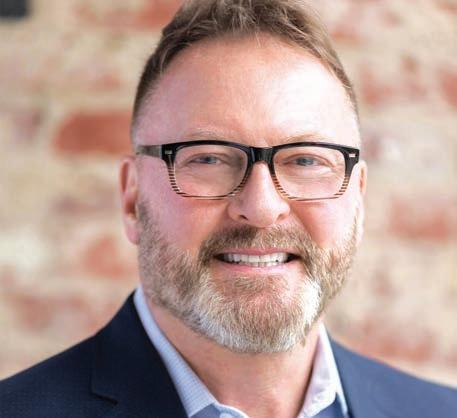
A longtime LGBTQ community ally, Ivey told the Washington Blade he is hopeful that the Pride Resource Fair will provide information about state and local government resources for Prince George’s County’s LGBTQ community in addition to helping celebrate Pride month.
Ivey is organizing the event jointly with openly gay Maryland state Delegate Ashanti Martinez (D-Prince George’s County) and Prince George’s County Council member Krystal Oriadha, who is bisexual.
The event is scheduled to take place from 10 a.m. to 2 p.m. at the Oakcrest Community Center at 1300 Capitol Heights Blvd. in Capitol Heights.
“We thought it would make sense to do an outreach event in celebration of Pride month,” Ivey told the Blade in an interview at his Capitol Hill office. “This is a resource fair, but the
idea is to make sure the community is getting what it needs,” he said.

An announcement of the Pride Resource Fair says state and local officials will be available at the event “to answer questions, provide resources, and more.”
Ivey said he has been following the many Pride-related events in the D.C. area as well as President Joe Biden’s hosting of the largest ever Pride celebration at the White House last week.
“I want to see us do more in Prince George’s County as well,” he said. “I know we’ve been a little behind the curve on these issues to some extent,” he told the Blade. “And I think it’s time for us to catch up.”
Ivy points out that he is a member of the House Equality Caucus, which advocates for LGBTQ rights, including legislation supporting LGBTQ equality. The Equality Caucus is chaired by openly gay U.S. Rep. Mark Pocan (D-Wisc.) and co-chaired by eight other openly gay and lesbian members of the House.
“This year, the Equality Caucus is celebrating Pride with our largest membership to date, 194 members — all of whom are devoted to fighting for equality for our community,” said Pocan in a statement on the caucus’s website.
The website includes the names and photos of each of the 194 members, who consist of Pocan as chair, the other eight out gay and lesbian members who serve as co-chairs, and 185 allied House members, including Ivey and D.C. Congres-
sional Del. Eleanor Holmes Norton (D).
KEY
Missing from the list of Equality Caucus members is U.S. Rep. George Santos (R-N.Y.), who pleaded not guilty in May to a 13-count federal indictment accusing him, among other things, of wire fraud, money laundering, and theft of public funds. In his election victory in 2022 from his Long Island district, Santos became the first openly gay Republican to win a seat in Congress as a non-incumbent.

Ivey, an attorney, who also won election to the U.S. House of Representatives for the first time in 2022, served two terms as the elected state’s attorney for Prince George’s County from 2002-2011 in the role of the county’s lead prosecutor. Ivey has also served for many years as a congressional staffer. He has worked as chief counsel to former Senate Majority Leader Tom Daschle (D-S.D.), as counsel to former U.S. Sen. Paul Sarbanes (D-Md.), on the staff of U.S. Rep. John Conyers (D-Mich.), and as chief majority counsel to the U.S. Senate Banking Committee.
With that as a backdrop, Ivey said as a longtime supporter of equal rights for minorities, including LGBTQ people, he is troubled over the large number of anti-LGBTQ bills that have surfaced and passed in state legislatures over the past year.
Although no such legislation has surfaced in Maryland, Ivey said he is committed to working with the House Equality Caucus to oppose the legislation in other states, especially including legislation targeting transgender young people.
LOU CHIBBARO JR.



























































Delaware may soon become the 16th state to ban the LGBTQ panic defense, in which defendants claim they panicked after learning someone was gay or transgender and injured or killed the victim.
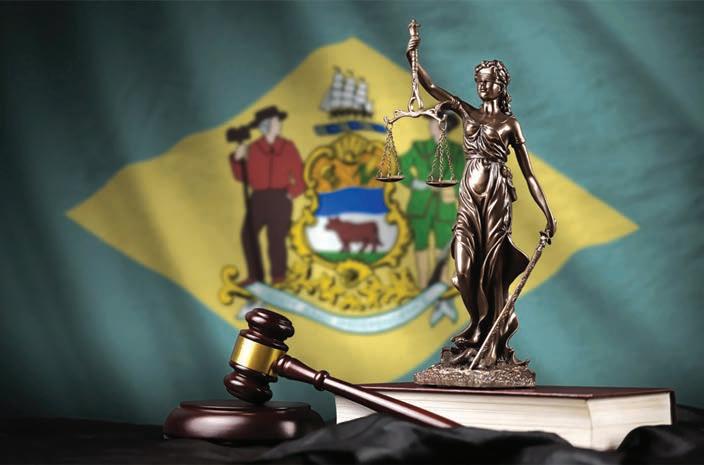
It’s been used five times in Delaware and more than 400 times across the country, said St. Edward’s University professor W. Carsten Andresen, who tracks uses of the defense. The defense is usually used so that defendants can have their charges lessened – often from murder to manslaughter.
If Delaware House Substitutive Bill 1 passes, defendants can’t use that defense to be acquitted of their crime or get reduced charges.
“This defense is used by defendants to justify violent acts against LGBTQ individuals by claiming that their sexual orientation or gender identity poses a sudden threat to their safety,” Sussex Pride Director David Mariner said before the House Judiciary Committee. “This defense is nothing more than a thinly veiled attempt to excuse bigotry and hate crimes, and it has no place in our justice system.”
Scholars and advocates say it’s unknown how many times it’s been used because there is no single national place where the crimes are reported. Andresen said he probably only knows a quarter of the cases in which it has been invoked.
It’s hard to find out when it is used, Delaware lawyer Mark Purpura said, because it’s unlikely researchers will find cases where it has been used successfully because the decision won’t be appealed. Andresen agreed. He said he finds cases through media reports, internet posts, and court appeals.
The House does not seem to be aware of the cases in Delaware; Purpura said during testimony that he was unaware of any uses in Delaware.
“It’s a risk,” he said. “If you’re a defense attorney, that could backfire.”
But, he said, doing nothing is far worse. If the jury hears the defense, he fears, it might resonate. Lee now agrees, writing in 2019 that making the bigotry clear isn’t enough to nullify the defense.
The most famous case of the gay panic defense followed the murder of Matthew Shepard, a gay college student in Wyoming. Aaron McKinney and Russell Henderson had offered Shepard a ride home, which he accepted. Instead of driving him home, the pair drove to a remote area and proceeded to rob and torture Shepard, then tied him to a fence and left him to die. McKinney’s lawyers claimed that Shepard made sexual advances toward him, and was driven to insanity in that moment, leading him to kill Shepard. The judge rejected the defense but allowed evidence portraying Shepard as an aggressive sexual deviant, Lee wrote. Shepard and Henderson were sentenced to two consecutive life sentences.
Morrison cited a 2015 case of the defense being used before the House Judiciary Committee, when Texas resident James Miller invited his neighbor Daniel Spencer over for a night of drinking and music. Miller claimed Spencer came on to him, so he stabbed Spencer in self-defense. Prosecutors argued that the blood at the crime scene didn’t match Miller’s version of events and it could very well have gone down the opposite way.
Either way, the jury sentenced Miller only to 10 years of probation and the judge tacked on six months in jail. Scholars have categorized the killing as using the gay panic defense.
Andresen keeps a private up-to-date database of LGBTQ panic defense uses, and the Williams Institute published its latest database in 2021. Andresen also found a 2018 Texas case in which Mark Daniel Lewis did not face trial after admitting he pushed Kenne McFadden, a transgender woman, into a river. He claimed she had groped him, according to local news reports. Prosecutors are taking a fresh look at the case after Insider found new evidence.
The only opposition so far to Delaware’s bill comes from Rep. Jeffrey Spiegelman, a Republican who represents the Townsend area. He asked why the bill only prohibits LGBTQ+ panic defenses and not those for religion or race. Purpura said he’s unaware of anyone invoking the panic defense after discovering someone’s race or religion.
Still, Spiegelman offered an amendment to the bill to prohibit all panic defenses based on race, religion, color, disability, sexual orientation, sex, age, gender identity, national origin, and a person’s ancestry. He did not respond to a voicemail.
Morrison, who introduced the bill, said the amendment “diminishes” the bill’s purpose.
“It takes the emphasis away from the fact that this is an issue of incredible importance to the LGBTQ+ community that affects the LGBTQ+ community, so we want to keep that spotlight,” he said in an interview.
The original bill, HB 142, was substituted for HS 1 to “make a legislator happy” and clarify that the bill does not ban mental illness from being used as a defense, Morrison said.
The substitution and re-introduction means the amendment attached to the original bill is gone, and Rep. Spiegelman did not respond to a voicemail asking if he will re-introduce it.
The American Bar Association announced its support for LGBTQ+ panic defense bans in 2013. Many legal scholars support bans, but not all. Some argue there are better ways to eliminate the effectiveness of the defense than banning it.
Cynthia Lee, a law professor at George Washington University, was one of them until recently. She argued that defendants should have to explicitly say that they were shocked their victim was LGBTQ. That way, she argued, all the defendant’s cards would be on the table.
“When gay panic arguments are forced to take a covert turn — when they are not explicit or out in the open — they may actually be more effective than they would be if out in the open,” she wrote in 2017, citing a 1986 trial in which the defense called four Black teenagers “savages,” “predators,” and “vultures” but didn’t mention their race explicitly. The jury found the shooter not guilty on almost all the charges.
“The existing research on stereotypes and prejudice suggests that stereotypes, which are deeply entrenched in the subconscious, are triggered more readily when not made salient,” Lee wrote, adding that it’s more effective to educate people. She did not respond to a request for comment.
Asked about Lee’s concerns that lawyers would find a way around the ban Purpura agreed that it’s possible.
Most representatives on the House Judiciary Committee, including Spiegelman, voted to advance the bill out of committee. Rep. Bryan Shupe did not vote either way, saying he needed more information.
The bill currently has 22 co-sponsors. There is one Republican in the group, Rep. Michael Smith, but Purpura said he doesn’t expect bipartisan support, which he said is “disappointing.”
The biggest challenge to the bill may be the time crunch before the Delaware Legislature goes on vacation on June 30. The Delaware House and Senate are currently scheduled to consider 17 bills and 33 more are on the House’s list of bills ready to be put on the agenda. And even more bills will be voted out of committee soon and will take their place on the ready list.
Delaware’s House Speaker, Pete Schwartzkopf, will decide where – or whether – to put the bill on the agenda for the House to vote on it. If the House passes it, it will go to a Senate committee and, if passed out of the committee, will go to the Senate floor for a vote and end up on the governor’s desk if passed. Schwartzkopf’s legislative assistant did not return a voicemail asking whether he will fast track the bill.
But the bill has plenty of time to go through all the motions – the legislature’s last day is June 30. After that, the bill would have most of next year to go through the motions.
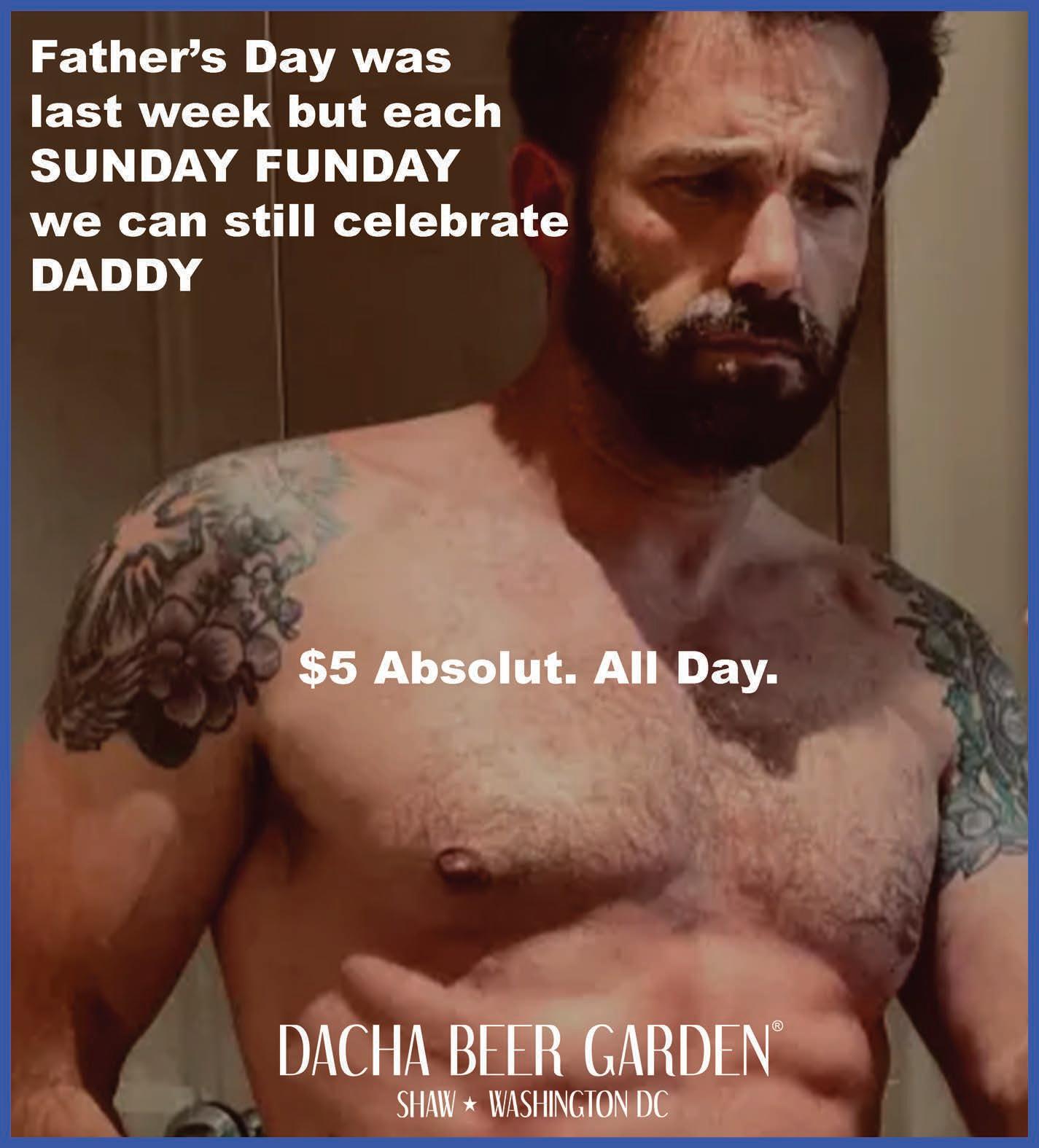
On June 23 of last year, I held the microphone as a gay man in the New Orleans City Council Chamber and related a lost piece of queer history to the seven council members. I told this story to disabuse all New Orleanians of the notion that silence and accommodation, in the face of institutional and official failures, are a path to healing.
The story I related to them began on a typical Sunday night at a second-story bar on the fringe of New Orleans’ French Quarter in 1973, where working-class men would gather around a white baby grand piano and belt out the lyrics to a song that was the anthem of their hidden community, “United We Stand” by the Brotherhood of Man.
“United we stand,” the men would sing together, “divided we fall” — the words epitomizing the ethos of their beloved UpStairs Lounge bar, an egalitarian free space that served as a forerunner to today’s queer safe havens.
Around that piano in the 1970s Deep South, gays and lesbians, white and Black queens, Christians and non-Christians, and even early gender minorities could cast aside the racism, sexism, and homophobia of the times to find acceptance and companionship for a moment.
For regulars, the UpStairs Lounge was a miracle, a small pocket of acceptance in a broader world where their very identities were illegal.
On the Sunday night of June 24, 1973, their voices were silenced in a murderous act of arson that claimed 32 lives and still stands as the deadliest fire in New Orleans history — and the worst mass killing of gays in 20th century America.
As 13 fire companies struggled to douse the inferno, police refused to question the chief suspect, even though gay witnesses identified and brought the soot-covered man to officers idly standing by. This suspect, an internally conflicted gay-for-pay sex worker named Rodger Dale Nunez, had been ejected from the UpStairs Lounge screaming the word “burn” minutes before, but New Orleans police rebuffed the testimony of fire survivors on the street and allowed Nunez to disappear.
As the fire raged, police denigrated the deceased to reporters on the street: “Some thieves hung out there, and you know this was a queer bar.”
For days afterward, the carnage met with official silence. With no local gay political leaders willing to step forward, national Gay Liberation-era figures like Rev. Troy Perry of the Metropolitan Community Church flew in to “help our bereaved brothers and sisters” — and shatter officialdom’s code of silence.
Perry broke local taboos by holding a press conference as an openly gay man. “It’s high time that you people, in New Orleans, Louisiana, got the message and joined the rest of the Union,” Perry said.
Two days later, on June 26, 1973, as families hesitated to step forward to identify their kin in the morgue, UpStairs Lounge owner Phil Esteve stood in his badly charred bar, the air still foul with death. He rebuffed attempts by Perry to turn the fire into a call for visibility and progress for homosexuals.
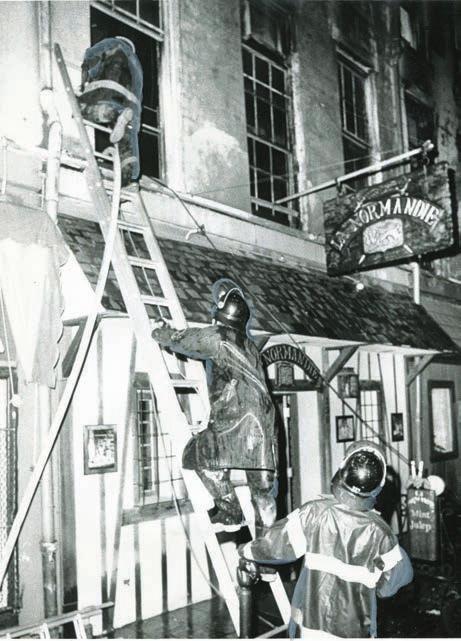
“This fire had very little to do with the gay movement or with anything gay,” Esteve told a reporter from The Philadelphia Inquirer. “I do not want my bar or this tragedy to be used to further any of their causes.”
Conspicuously, no photos of Esteve appeared in coverage of the UpStairs Lounge fire or its aftermath — and the bar owner also remained silent as he witnessed police looting the ashes of his business.
“Phil said the cash register, juke box, cigarette machine and some wallets had money removed,” recounted Esteve’s friend Bob McAnear, a former U.S. Customs officer. “Phil wouldn’t report it because, if he did, police would never allow him to operate a bar in New Orleans again.”
The next day, gay bar owners, incensed at declining gay bar traffic amid an atmosphere of anxiety, confronted Perry at a clandestine meeting. “How dare you hold your damn news conferences!” one business owner shouted.
Ignoring calls for gay self-censorship, Perry held a 250-person memorial for the fire victims the following Sunday, July 1, culminating in mourners defiantly marching out the front door of a French Quarter church into waiting news cameras. “Reverend Troy Perry awoke several sleeping giants, me being one of them,” recalled Charlene Schneider, a lesbian activist
who walked out of that front door with Perry.
Esteve doubted the UpStairs Lounge story’s capacity to rouse gay political fervor. As the coroner buried four of his former patrons anonymously on the edge of town, Esteve quietly collected at least $25,000 in fire insurance proceeds. Less than a year later, he used the money to open another gay bar called the Post Office, where patrons of the UpStairs Lounge — some with visible burn scars — gathered but were discouraged from singing “United We Stand.”
New Orleans cops neglected to question the chief arson suspect and closed the investigation without answers in late August 1973. Gay elites in the city’s power structure began gaslighting the mourners who marched with Perry into the news cameras, casting suspicion on their memories and re-characterizing their moment of liberation as a stunt.
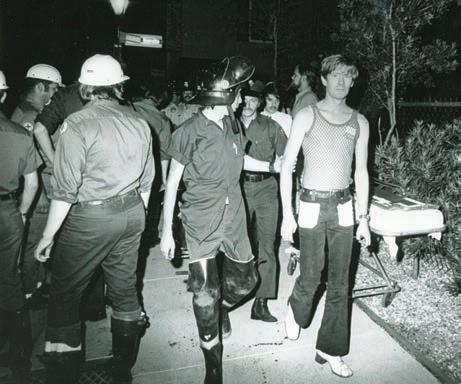
When a local gay journalist asked in April 1977, “Where are the gay activists in New Orleans?,” Esteve responded that there were none, because none were needed. “We don’t feel we’re discriminated against,” Esteve said. “New Orleans gays are different from gays anywhere else… Perhaps there is some correlation between the amount of gay activism in other cities and the degree of police harassment.”
An attitude of nihilism and disavowal descended upon the memory of the UpStairs Lounge victims, goaded by Esteve and fellow gay entrepreneurs who earned their keep via gay patrons drowning their sorrows each night instead of protesting the injustices that kept them drinking.
Into the 1980s, the story of the UpStairs Lounge all but vanished from conversation — with the exception of a few sanctuaries for gay political debate such as the local lesbian bar Charlene’s, run by the activist Charlene Schneider.
By 1988, the 15th anniversary of the fire, the UpStairs Lounge narrative comprised little more than a call for better fire codes and indoor sprinklers. UpStairs Lounge survivor Stewart Butler summed it up: “A tragedy that, as far as I know, no good came of.”
Finally, in 1991, at Stewart Butler and Charlene Schneider’s nudging, the UpStairs Lounge story became aligned with the crusade of liberated gays and lesbians seeking equal rights in Louisiana. The halls of power responded with intermittent progress. The New Orleans City Council, horrified by the story but not yet ready to take its look in the mirror, enacted an anti-discrimination ordinance protecting gays and lesbians in housing, employment, and public accommodations that Dec. 12 — more than 18 years after the fire.
“I believe the fire was the catalyst for the anger to bring us all to the table,” Schneider told The Times-Picayune, a tacit rebuke to Esteve’s strategy of silent accommodation. Even Esteve seemed to change his stance with time, granting a full interview with the first UpStairs Lounge scholar Johnny Townsend sometime around 1989.
Most of the figures in this historic tale are now deceased. What’s left is an enduring story that refused to go gently. The story now echoes around the world — a musical about the UpStairs Lounge fire recently played in Tokyo, translating the gay underworld of the 1973 French Quarter for Japanese audiences.

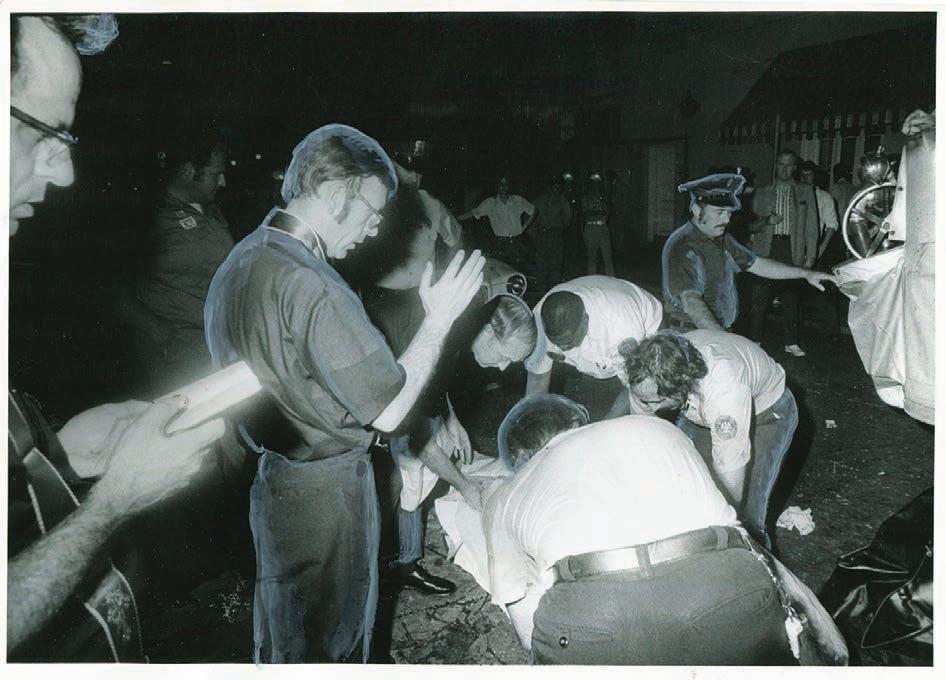
When I finished my presentation to the City Council last June, I looked up to see the seven council members in tears. Unanimously, they approved a resolution acknowledging the historic failures of city leaders in the wake of the UpStairs Lounge fire.
Council members personally apologized to UpStairs Lounge families and survivors seated in the chamber in a symbolic act that, though it could not bring back those who died, still mattered greatly to those whose pain had been denied, leaving them to grieve alone. At long last, official silence and indifference gave way to heartfelt words of healing.
The way Americans remember the past is an active, ongoing process. Our collective memory is malleable, but it matters because it speaks volumes about our maturity as a people, how we acknowledge the past’s influence in our lives, and how it shapes the examples we set for our youth. Do we grapple with difficult truths, or do we duck accountability by defaulting to nostalgia and bluster? Or worse, do we simply ignore the past until it fades into a black hole of ignorance and indifference?
I believe that a factual retelling of the UpStairs Lounge tragedy — and how, 50 years onward, it became known internationally — resonates beyond our current divides. It reminds queer and non-queer Americans that ignoring the past holds back the present, and that silence is no cure for what ails a participatory nation. Silence isolates. Silence gaslights and shrouds. It preserves the power structures that scapegoat the disempowered.
Solidarity, on the other hand, unites. Solidarity illuminates a path forward together. Above all, solidarity transforms the downtrodden into a resounding chorus of citizens — in the spirit of voices who once gathered ‘round a white baby grand piano and sang, joyfully and loudly, “United We Stand.”
( Robert W. Fieseler is a New Orleans-based journalist and the author of “Tinderbox: the Untold Story of the Up Stairs Lounge Fire and the Rise of Gay Liberation.”)
Recently, the focus of interviews of trans Colorado State Rep. Brianna Titone (D) have largely been defined by matters like last November’s deadly anti-LGBTQ shooting at Club Q in Colorado Springs and the escalating legislative attacks on the trans community.
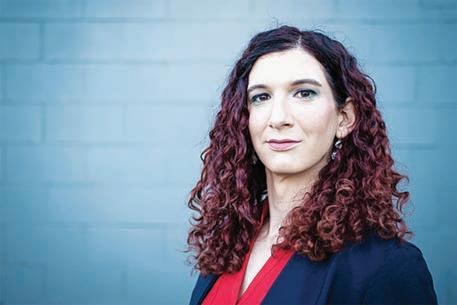
However, when she sat down with the Washington Blade on Thursday in the Washington, D.C. offices of the LGBTQ Victory Fund and Institute, Titone dove into another challenge that she, perhaps more than any other state lawmaker, has taken on directly: Why is it so difficult, or even impossible, for consumers, even those with the inclination and know-how, to repair their automobiles, wheelchairs, farm equipment, and electronics like printers, smartphones, and, as Titone experienced, video game consoles?
A self-described “tinkerer and scientist” who has a degree in information communications technology and considerable programming experience, Titone was dogged by the question after discovering there was no way for her to fix the optical drive of her Xbox. “I couldn’t even figure out how to open the thing because there’s not even a screw on it,” she said.
As it turned out, the answer was even more frustrating.
Reading about the “right to repair” movement, Titone learned how manufacturers deliberately, anticompetitively, and, many argue, unlawfully erect barriers that discourage or prohibit their customers from fixing certain products – by, for example, allowing only the manufacturer’s own maintenance services, restricting access to tools and components, and implementing software barriers.
Titone was first elected in 2018, becoming Colorado’s first openly trans state lawmaker and only the fourth in the U.S. Shortly afterwards, she said, Colorado Gov. Jared Polis (D) –who is the country’s second openly LGBTQ governor – asked Titone to create and introduce a right to repair bill.
She was ultimately successful by strategically taking on one industry at a time. Meanwhile, among the other issues Titone was working on was a bill protecting trans Coloradans’ access to healthcare, which she passed by taking the exact opposite approach.
As Titone quickly learned, when it comes to right to repair, new legislation from federal or state lawmakers or new rules by the Federal Trade Commission’s Bureau of Consumer Protection are met with powerful opposition from well-resourced industries backed by armies of lawyers and lobbyists. With her bill, Titone took on three: manufacturers of electric wheelchairs, farm equipment, and consumer electronics.
Titone told the Blade her first right to repair bill was tabled as the legislature worked to prioritize pandemic-related matters, and her second attempt was stymied in committee, having faced an “immense” lobbying effort, particularly from consumer electronics companies.
Partially because electric wheelchairs are often owned by Medicaid and purchased by insurance providers, they can be extremely costly and difficult to repair. As one patient with multiple sclerosis told Colorado Public Radio, each of the many adjustments that were necessary to accommodate his needs required a service visit from a technician, who made each fix with a smartphone app. It was available to download on the App Store – but only for “authorized users.”
Of all the witnesses who were called to testify in favor of Titone’s bill, she said it was these Coloradans whom her colleagues considered the most compelling. So, in 2021, Titone introduced a third right to repair bill focused only on electric wheelchairs, and “we were able to pull the heartstrings of the committee [members] so the legislature would pass it,” she said, adding, “it wasn’t an overwhelming vote, but I did get a couple of Republicans.”
When the measure was signed into law in March, it became just the second statewide right to repair law since Mas-
sachusetts’s successful ballot initiative in 2012, which focused on automobiles. “My bill,” Titone said, “was the first right to repair bill after many, many, many attempts by many states over the last four or five years.”
Up next was farm equipment. Companies like John Deere, the sector’s largest manufacturer, have long been criticized for using software locks to prevent customers from fixing their tractors. And on the day in which the Colorado Senate Committee on Agriculture and Natural Resources was set to debate Titone’s bill, the industry submitted a memorandum of understanding that was intended to allay concerns, likely in an effort to forestall the right to repair law.
“But we still we still went forward,” Titone said, “we still passed the law” with Polis’s signature on April 25.
Colorado’s legislative session wrapped in May, but Titone expects to turn her attention next to the consumer electronics industry. In the meantime, she hopes to use some of her time in Washington to share experiences and insights that might help shore up efforts to pass federal right to repair protections like the Agriculture Right to Repair Act introduced last year by Sen. Jon Tester (D-Mont.).
The primary reason, however, that Titone was in the nation’s capital was for a White House State Legislative Convening on Reproductive Rights, held on Thursday with Vice President Kamala Harris and officials from the administration like White House Press Secretary Karine Jean-Pierre.
Titone has considerable experience and insight to offer on this front, too – having successfully led passage of legislation protecting reproductive freedoms with provisions also guarding Coloradans’ access to gender affirming care.
Grouping these issues together in one bill, a departure from how she advanced the right to repair legislation, proved to be a winning strategy.
Linking reproductive and gender related healthcare protections makes a lot of sense.
For one thing, Titone said, reproductive healthcare and guideline directed gender affirming healthcare interventions largely concern the same biological systems (sex hormones, for example). She added the overlaps only continue from there, extending all the way to the methods and tactics used by anti-abortion and anti-trans activists.
For example, she noted, lawmakers in conservative states are looking for ways to prevent transgender residents and their families from crossing into other states to access gender affirming treatments that they have banned or restricted within their own borders.
Likewise, the Washington Post reported that shortly after the U.S. Supreme Court struck down the constitutional right to abortion last year, conservative legal activists drafted model legislation that “would allow private citizens to sue anyone who helps a resident of a state that has banned abortion from
terminating a pregnancy outside of that state.”
“It hasn’t come to the same level that abortion has, but those same aspects of attacking people [who are] getting this kind of care could easily be translated to gender affirming care,” Titone said.
“Why should we stop at abortion care and leave this group of people out when [opponents are] just going to clone the bills that they have against the abortion providers and seekers to [target] the gender affirming care providers and seekers?”
Perhaps even more fundamental and more salient, Titone said, is how privacy and autonomy are under attack whether the targets are reproductive rights or the rights to access gender affirming care. “What does a politician have to do with a medical decision?”
Another important feature is the bedrock of support for access to both reproductive and gender affirming care, which comes from every scientific and medical institution with relevant expertise, Titone noted.
Even in liberal Colorado, passing Titone’s bill was a considerable challenge politically.
Titone said that ultimately, because gender affirming care is comparably more controversial than reproductive care, bundling them together in one bill weakened opposition from Republicans because most voters support access to safe and legal abortions.
“When I debated my bill,” Titone said, she told Republicans, “Look, this is the wrong issue for you to debate because when I [knocked on] doors, people said abortion was one of the issues that made them vote for Democrats.”
Still, some GOP members like Colorado’s House Minority Leader Mike Lynch objected to the provisions in Titone’s legislation protecting abortion seekers from coming to Colorado from neighboring states that have restricted access to the procedure.
Titone’s bill also protects the right of people in all states to travel to Colorado to begin puberty blocking medication or undergo gender-affirming surgery without the risk of interstate prosecution.
The lawmaker said debates in the legislature over, especially, the gender affirming care provisions in the bill “really showed some of the true colors of some of my colleagues.” For example, she said one member argued access to gender affirming care “leads to people being murdered,” pointing to the Nashville elementary school shooting in March that was committed by a trans gunman. Another member, she said, publicly declared during multiple town hall style events that he would never use Titone’s feminine pronouns.
“I expected these things,” Titone said, noting that “the attacks on social media were pretty harsh.” At the same time, she said, “doing the hard work has its risks and has its rewards.”
While Colorado is led by a Democratic governor and Democrats retain control of the state’s General Assembly, Titone said it took some work to convince even colleagues from her own party to buy into the rationale for grouping reproductive and trans healthcare rights together in her bill.
Additionally, Titone said, she was approached by healthcare providers in Colorado who administer gender affirming care and were concerned that her bill might inspire threats of violence like those made recently against clinicians and facilities in Massachusetts.
“They said we’re nervous about this bill,” Titone said, but she told them, “Without this, your providers are going to get sued.” Plus, she said, the anti-trans extremists “are going to find you eventually,” so let’s “rip the Band-Aid off and just do it.”
‘What does a politician have to do with a medical decision?’Colorado State Rep. BRIANNA TITONE (D) (Photo courtesy of the Titone Campaign)

During Pride month each June, Stonewall National Monument volunteers put up 250 LGBTQ Pride flags on the black iron decorative picket fence that rings the Christopher Street park.
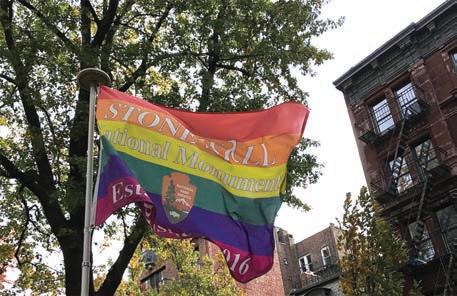
On Sunday, the volunteers found at least 70 of those flags torn down and damaged in what the New York Police Department‘s Hate Crimes Task Force is investigating as a hate crime.
The Stonewall National Monument, the first U.S. national monument dedicated to LGBTQ history, was dedicated in 2016. It encompasses a park across the street from the Stonewall Inn, a bar where patrons fought back against a
police raid on June 28, 1969, and helped spark the contemporary LGBTQ rights movement.
According to park volunteer Steven Menendez, speaking with WNYW in New York, flags are often pulled off the railing by partygoers late at night. But when Menendez woke Sunday morning and arrived he found 68 flags damaged — including 33 broken in one section — he said he was alarmed.
“We have so much hatred and anger in the air right now,” Menendez told WNYW. “We really need to reverse that and replace it with love compassion and acceptance.”
BRODY LEVESQUEIn his 80-page order Tuesday, U.S. District Court Judge James M. Moody, Jr., permanently enjoined the state of Arkansas from enforcement of House Bill 1570, aimed to ban gender-affirming care for transgender youth, finding the law violates the Constitutional rights of transgender youth, their parents, and their medical providers.
Moody held that plaintiffs prevailed on all their claims, finding the ban violated the Equal Protection Clause, the Due Process Clauses and the First Amendment of the U.S. Constitution.
The decision follows a weeks-long trial in the fall of 2022 and is the first final merits ruling in the country on such a law. LGBTQ legal advocates noted that similar laws in Alabama, Florida and Indiana are currently blocked by preliminary injunctions from federal courts.
The law was challenged by four families of trans youth and two doctors. The law also barred any state funds or insurance coverage for gender-affirming health care for trans people under 18, and it would have allowed private insurers to refuse to cover gender-affirming care for people of any age.
“I’m so grateful the judge heard my experience of how
this health care has changed my life for the better and saw the dangerous impact this law could have on my life and that of countless other transgender people,” said Dylan Brandt, a 17-year-old trans boy from Arkansas. “My mom and I wanted to fight this law not just to protect my health care, but also to ensure that transgender people like me can safely and fully live our truths. Transgender kids across the country are having their own futures threatened by laws like this one, and it’s up to all of us to speak out, fight back, and give them hope.”
“We’re relieved and grateful that the court has ruled in favor of these brave Arkansans and their rights, protecting life-saving care that should be available to all trans youth,” said Holly Dickson, executive director of the American Civil Liberties Union of Arkansas. “This decision sends a clear message. Fear-mongering and misinformation about this health care do not hold up to scrutiny; it hurts trans youth and must end. Science, medicine, and law are clear: Gender-affirming care is necessary to ensure these young Arkansans can thrive and be healthy.”
“This ruling offers an enormous relief to transgender youth and their families across Arkansas and across the
country,” said Chase Strangio, deputy director for transgender justice at the ACLU’s LGBTQ and HIV Project. “In state after state, transgender people are being forced to fight for our most basic rights, including access to the health care many of us need to live. This victory shows that these laws, when tested by evidence, are indefensible under any standard of constitutional review. We hope that this sends a message to other states about the vulnerability of these laws and the many harms that come from passing them. We’re so thankful for the bravery of our clients and the tireless work of advocates in Arkansas.”
“This is the first final decision in the country in a case challenging a ban on medical care for transgender youth, and it could not be a more resounding victory for the transgender minor plaintiffs and their parents. This important victory will be enormously helpful in the many other pending challenges to similar bans in other states. The ACLU did a superb job in this case, which has now set a precedent that other courts are likely to follow,” Shannon Minter legal director for the National Center for Lesbian Rights, told the Washington Blade Tuesday afternoon.
BRODY LEVESQUEDuring her speech at the 12th annual Defense Department’s LGBTQ Pride event held at the Pentagon earlier this month, Lt. Gen. DeAnna Burt, deputy chief of space operations for the U.S. Space Force, leveled criticism at state-level legislation the general feels will negatively impact LGBTQ military personnel and their dependents.
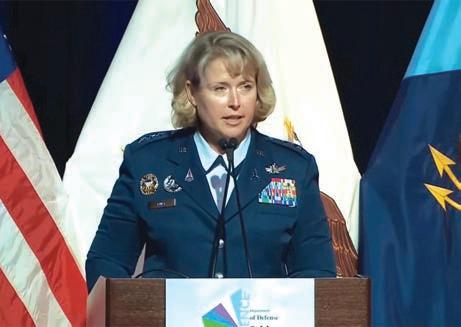
“Since January of this year, more than 400 anti-LGBTQ+ laws have been introduced at the state level,” said Burt. “That number is rising and demonstrates a trend that could be dangerous for service members, their families, and the readiness of the force as a whole,” she added.
Without specifically calling out individual states, Burt took the lawmakers to task for leaving her with options in personnel choices that because of the hostile environments targeting the LGBTQ community translated to her having to settle on filling jobs with less qualified persons so as to avoid a potential harmful environment for LGBTQ service members or their families.
“When I look at potential candidates, say, for squadron command, I strive to match the right person to the right job. I consider their job performance and relevant experience first. However, I also look at their personal circumstances, and their family is also an important factor,” the general said.
“If a good match for a job does not feel safe being
themselves and performing at their highest potential at a given location, or if their family could be denied critical health care due to the laws in that state, I am compelled to consider a different candidate, and, perhaps less qualified. Those barriers are a threat to our readiness, and they have a direct correlation to the resiliency and wellbeing
of our most important operational advantage: Our people,” Burt stressed.
State legislatures across the nation have this year introduced nearly 525 bills attacking the LGBTQ community. A Defense Department spokesperson while declining to comment directly on Burt’s comments, said:
“We have the top talent in the nation, and we must enable them to perform their missions by ensuring they are not worried about the health and safety of their families. The department recognizes that various laws and legislation are being proposed and passed in states across America that may affect LGBTQ soldiers, sailors, Marines, airmen, guardians, and/or their LGBTQ dependents in different ways.”
“Efforts are made by leadership on a continuing basis to identify and remove any barriers that impacts force readiness and moral,” the official added.
During a Pride event at the White House, President Joe Biden called the new state measures ‘terrifying’ attacks on LGBTQ rights.
“When families across the country face excruciating decisions to relocate to a different state to protect their child from dangerous ant-LGTBQ laws, we have to act,” the president said.
BRODY LEVESQUE

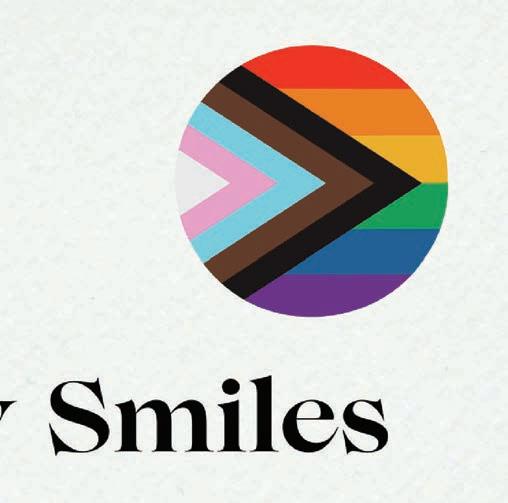
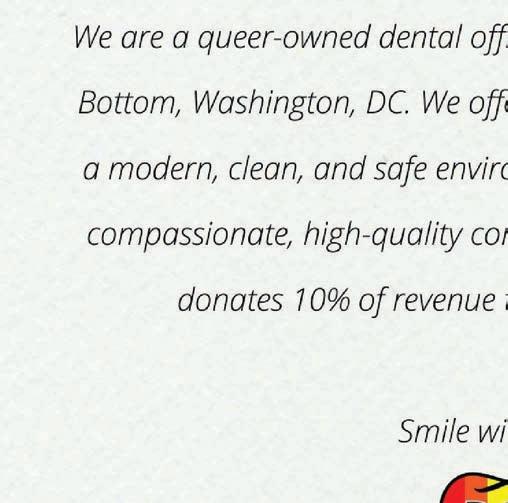
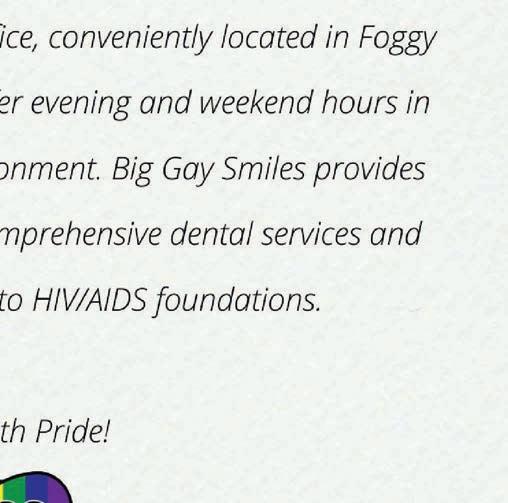


In a recently unearthed video interview, Robert F. Kennedy Jr., the noted anti-vaccine conspiracy theorist and a Democratic challenger of President Joe Biden’s 2024 reelection bid, claimed chemicals in the water supply are turning boys trans.
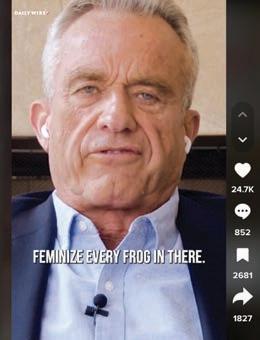
“A lot of the problems we see in kids, particularly boys, it’s probably under appreciated how much of that is coming from chemical exposures, including a lot of sexual dysphoria that we’re seeing,” the scion of the Kennedy political dynasty said during an interview with Canadian psychologist and ring-wing pundit Jordan Peterson.
“I mean, they’re swimming through a soup of toxic chemicals today, and many of those are endocrine disruptors,” Kennedy said, adding, “there’s Atrazine throughout our water supply, and atrazine, by the way, if you, in a lab, put Atrazine in a tank full of frogs, it will chemically castrate and forcibly feminize every frog in there and 10 percent of the frogs, the male frogs, will turn into fully viable females able to produce viable eggs.”
“If it’s doing that to frogs,” he said, “there’s a lot of other
evidence that it’s doing it to human beings as well.”
Kennedy, whose career has been defined as much by his membership in one of America’s most famous families as by his allegiance to dangerous conspiracy theories, has recently suggested pharmaceuticals have caused mass casualty school shootings.
“Prior to the introduction of Prozac, we had almost none of these events in our country and we’ve never seen them in human history, where people walk into a schoolroom of children or strangers and start shooting people,” he said earlier this month during an interview with increasingly right-wing Twitter CEO Elon Musk.
Research indicates Kennedy’s claims about atrazine are specious, at best.
According to the Centers for Disease Control and Prevention’s Agency for Toxic Substances and Disease Registry, “When the general population is exposed to atrazine, exposure levels are expected to be very low.”
The agency wrote, “Maximum seasonal and average atrazine concentrations of 61.6 and 18.9 ppb, respectively,
were detected during a 1993-1998 monitoring program of community water systems in the United States.”
“There was a possible association between atrazine use/exposure of male farmers and increased pre-term delivery, but not decreased fecundity,” the CDC wrote.
“Epidemiological studies, examining developmental end points, have found an association between Iowa communities exposed to atrazine in the drinking water and an increased risk of small for gestational age babies and other birth defects.”
At the same time, “Farm couples living year-round on farms in Ontario, Canada, did not have altered sex ratios, and the risk of small for gestational age deliveries was not increased in relation to pesticide exposure.”
The video of Kennedy and Peterson was tweeted on Sunday by Mehdi Hasan, host of MSNBC’s “The Mehdi Hasan Show,” who pointed out that Kennedy’s comments echo claims by far-right conspiracy theorist Alex Jones, who said in 2015, “I don’t like ’em putting chemicals in the water that turn the freakin’ frogs gay!”
Recent surveys have shown Kennedy earning as much as 20 percent support from Democratic respondents — but according to The New York Times, “the main reason voters liked him was because of the Kennedy name.”
CHRISTOPHER KANEDeSantis War Room, the official rapid response Twitter account for Florida’s Republican Gov. and 2024 presidential candidate Ron DeSantis, shared a video yesterday that implied President Joe Biden is a pedophile.
The clip contains selectively edited footage from swearing-in ceremonies for senators and their families, events over which Biden presided as vice president during the Obama administration, having previously served in the chamber from 1973 to 2009.
The video also contains audio from a speech in which Biden urged Congress to pass the Equality Act and is heard saying, “LGBTQ Americans, especially children, you’re loved, you’re heard, and this administration has your back.”
In a statement to the Washington Blade, Democratic National Committee Spokesperson Ammar Moussa called out the hypocrisy by Twitter, which recently
blocked a North Carolina Democrat’s pro-abortion rights campaign ad.
“It’s telling that Twitter’s new regime is willing to aid desperate campaigns spreading desperate lies but will block campaign videos about protecting women’s reproductive freedom,” Moussa said. “That says everything you need to know.”
Christina Pushaw, a longtime DeSantis aide who runs the governor’s War Room, shared the ad attacking Biden in a tweet calling the president “Creep in Chief.”
Last year, when defending DeSantis’s widely panned “Don’t Say Gay” law, Pushaw said the legislation’s opponents were “groomers” who abuse children – an outrageous smear against the LGBTQ community and its allies.
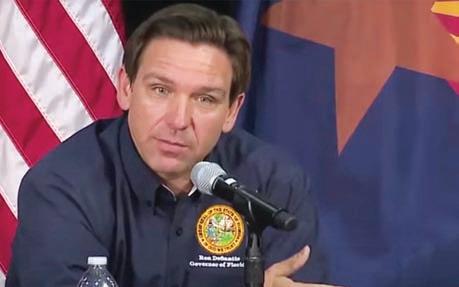
False, baseless, vile accusations of pedophilia and child sexual abuse have proliferated on the right, as a means of attacking Democrats and LGBTQ people. These
The American Medical Association on Monday voted to strengthen its policies governing access to gender affirming care for transgender and gender diverse individuals.
The group committed to opposing the criminalization of patients for seeking gender affirming care, and of families and healthcare providers for facilitating access to or administering that care.
Additionally, the AMA pledged to work with federal and state legislators and regulators to oppose policies criminalizing these guideline-directed healthcare interventions and to educate the Federation of State Medical Boards on their importance.
The resolution was introduced by the Endocrine Society, which issued a press release Monday celebrating the move: “As political attacks on gender-affirming care escalate, it is the responsibility of the medical community to
speak out in support of evidence-based care.”
“Medical decisions should be made by patients, their relatives and health care providers, not politicians,” the Endocrine Society wrote.
The resolution was cosponsored by the American Academy of Pediatrics, the American College of Obstetricians and Gynecologists, the American Urological Association, the American Society for Reproductive Medicine, the American College of Physicians, the American Association of Clinical Endocrinology, GLMA: Health Professionals Advancing LGBTQ+ Equality and the AMA’s Medical Student Section.
The Endocrine Society explained the legislative bans on gender affirming care — passed in states in which 30 percent of the nation’s trans and gender-diverse youth now live — are misguided.
“Pediatric gender-affirming care is designed to take a conservative approach,” the group wrote.
“When young children experience feelings that their gender identity does not match the sex recorded at birth, the first course of action is to support the child in exploring their gender identity and to provide mental health support, as needed.”
“Medical intervention is reserved for older adolescents and adults, with treatment plans tailored to the individual and designed to maximize the time teenagers and their families have to make decisions about their transitions.
“Major medical organizations also agree on waiting until an individual has turned 18 or reached the age of majority in their country to undergo gender-affirming genital surgery.”
CHRISTOPHER KANE conspiratorial ideas are also central to the right-wing QAnon movement.RFK Jr. claims chemicals in the water are turning boys transFlorida Gov. RON DESANTIS (R) (Screen capture/YouTube) ROBERT F. KENNEDY JR. (Screen capture/TikTok)

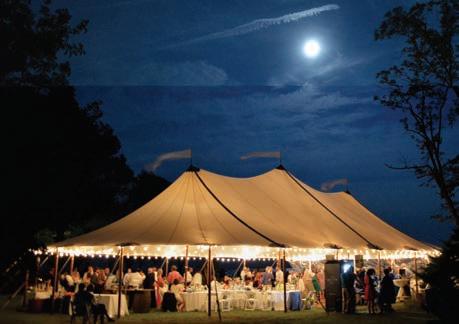
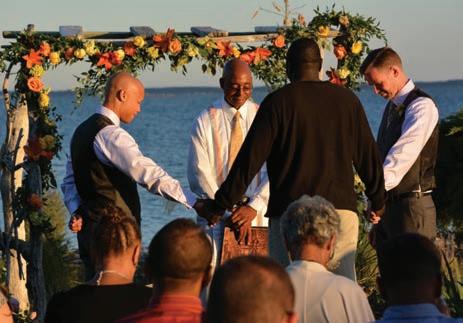









served as historian for this year’s Pride Interfaith Service.
The setting sun of Tuesday, June 13 streamed brilliant rays of light while a call to gather rang out from the Umoja Dono and Waimbaji drummers of Unity Fellowship Church of Washington, DC. The sacred drumming signaled the opening of the annual 2023 Pride Interfaith Service organized by Center Faith of The DC Center for the LGBT Community. Thirty clergy and lay leaders (LGBTQ and allies) from diverse faith traditions in this region sang, “Step by step the longest march can be won! Can be won!”
The legacy of collaboration continued at last year’s 40th annual service. Michelle, a mystic and practitioner of several faith traditions, recalled this history at last year’s service and echoed the theme, “Born in a pandemic. Quilted Together. United by Faith.” She invited participants to remember the Names Project AIDS Quilt spread across the National Mall, how the quilt represents people of diverse faiths. Michelle lit a candle for them on behalf of the service participants, to remember the people who died from AIDS or were persecuted or died because of their identities. It was a powerful message of remembrance that echoed again this year.
Again this year, Elder Rev. Dr. Akosua McCray, pastor of the United Fellowship Church of Washington DC, poured a libation honoring the ancestors. Welcoming everyone gathered to remember those in the community who have passed, names of the departed rang out in the church as she poured water into a clear vase.
Noting that anti-LGBTQ rhetoric and legislation spreads like wildfire across the United States, six faith leaders then rose — Rev. Eric Eldritch, Rabbi Debbie Reichmann, Ebony Peace, Rachel Duplin, Ellen Wright, Myra Flemister, and Dr. Carla Sherrell — to highlight the intersectionality of this service and the communities it serves. Individuals of all faiths, races, abilities, identities, genders, sexual orientation, and ages were intentionally welcomed into service at all stages of their journey. This solidarity was cemented when a queer nonbinary young adult writer Zoë G. Sharp read their original poetry “Journey of Resilience.”
Fervent and fierce calls to prayer and action rose from faith leaders. This year, representatives from the Stone Circle Wicca (USA), Circle Sanctuary, Inner Light Ministries UCC, Community Church of Washington, DC., Unity Fellowship Christian Church, Muslims for Progressive Values, Adas Israel Congregation, Sunstone Chapel, Faith Temple, Interfaith Families Project, Wellspring UCC, Metropolitan Community Church DC, Bet Mishpachah, LGBTQI+ Sikhs, West Presbyterian Church, Better Living Kingdoms Ministry, National Catholic Church of North America, and the Alfred Street Baptist Church participated in a service affirming the importance of faith in the lives of many LGBTQ individuals. These clergy, rabbi, ministers, and lay leaders represented a variety of wisdom, practices, and traditions speaking of faith and pride.
The service began and ended with drumming and music, including the joyous singing of solo Janavia Harrell, “Can’t Give Up Now” accompanied by Chaplain, Lt. Colonel. Rev. Countess Cooper and a recording of “We Stand Together” by Fly Young Red & Sydney LGBT Choir. Music was integral to this interfaith celebration and culminated with an anthem of purpose and resolve proclaiming, “You thought that our Pride was gone! Oh No! Oh No! We’re gonna do it anyway! We’re gonna do it anyway! … because there is Something inside so Strong!”
If you are interested in attending the Pride Interfaith Service next year or joining the planning committee, please reach out to Center Faith at The DC Center for the LGBT Community.
is a longtime LGBTQ rights and Democratic Party activist. He writes regularly for the Blade.

One appropriate definition of parasite is, “applies to one who clings to a person of wealth, power, or influence or is useless to society.” Trump sycophants are those politicians who follow him into his depravity, defending his crimes, trying to save their own careers. Sadly, this is the Republican Party we face today.
The simple reality is the only way decent people will win the culture wars we are fighting in the United States today, is to vote every Republican out of office. To do that we need to explain to people the realities of our system of government. Teach them which decisions are made at the congressional, or presidential level, and which at the state and local level. Explain how every vote counts including those for school board, county council, state legislature, and governor.
When you look at Florida, it becomes clear how dangerous state government can be to LGBTQ people, women, and all minorities. How their legislature passed laws banning what teachers can say and do in schools when talking about the LGBTQ community. How they would erase us from books and magazines students are allowed to read. Then they pass a bill limiting legal abortions to only six weeks. Many women don’t even know they are pregnant at six weeks. Now they have a vile governor who advocates for, and signs those bills. So, we have a confluence of evil. The citizens of Florida could change that if they want by only one method, and that is by using their vote. In 2022, fewer than 50% of eligible voters in Florida cast a ballot. Who knows what could change if we energized enough currently registered voters, and got new voters, to the polls?
We must educate young people on what their vote can do, and then motivate them to come out and exercise that right. They need to understand what it will mean for their personal freedoms in the future. What it could mean for the air they breathe and cost of their healthcare. People must understand judges are called to make decisions on how we live our lives, and those judges are either elected directly by us, or appointed by people we elect. Recently, we saw a Wisconsin Supreme Court Justice elected who will support a woman’s right to control her own body and healthcare for a 10-year term. It makes a difference. In North Carolina where only 48% of eligible voters voted, they elected judges who reversed decisions that had the impact of eliminating several Democratic congressional districts in the state. Again, voting clearly matters.
So, to build a better future for those who care about their personal freedoms, about the right to control their own healthcare, make it affordable, among so many other things, every vote matters. A vote today can save our democracy and ensure each citizen who has the right to vote based on our constitution, won’t find some of their elected officials continue to make it harder for them to cast their ballot.
The time has come for organizations representing women, the LGBTQ+ community, other minorities, and environmental issues; who see Republicans reversing any progress they have made over decades, to start talking to their members and supporters about voting. With each press release on an issue they are working on, they should add a paragraph about the importance of the vote and implore their supporters to register to vote. They should share with their members and supporters’ information on how to register in their state and how to vote. Along with calling for protests, engaging in lawsuits, and lobbying if they do that, they need to make it clear if their supporters don’t vote, the things they believe in will not come to pass. They will continue to lose. Explain while progress may be incremental, losing often creates drastic results.
President Biden recently told a voter who questioned him about a policy they didn’t think he was doing enough about, “Don’t compare me to the almighty, compare me to the alternative.” This is what we need to tell every voter to think about. Each Democrat must campaign on what he/she stands for and contrast it with what the Republican they are running against stands for. Then say to the voters in their districts, compare me not to what you think is perfect, but to what my opponent would do.
If we do that, Democrats win because their opponents today are members of a Republican Party sadly comprised of Trump sycophants and parasites.
‘You thought that our Pride was gone! Oh No! We’re gonna do it anyway!’
Today’s GOP is mostly sycophants and parasites
To fight back, we must vote in greater numbers





is an equal opportunity specialist in the U.S. Department of Labor’s Civil Rights Center and secretary/treasurer of Pride@DOL.









JUNE 23RD


THE CORNER AT WHITMAN-WALKER
1701 14TH ST NW
HOSTED BY RAYCEEN PENDARVIS
MUSIC BY DJ ALEX LOVE
5:30PM - 8:30PM Join



Diversity is an essential component of a successful team. The more skills, experiences and ideas we have to draw from, the more equipped we are to develop creative solutions. America’s diversity has always been one of our greatest strengths, which is why the Department of Labor is proud to support and enforce laws that protect America’s workers in all of our diversity.
Diversity, however, has to consider and acknowledge any barriers to full participation and inclusion of all workers. For workers in the Lesbian, Gay, Bisexual, Transgender, Queer and Intersex (LGBTQI+) community, such as myself, concerns about harassment, prejudice, and discrimination can prevent us from comfortably owning our identities in the workplace. So this Pride month, we’re taking the opportunity to joyfully celebrate our LGBTQI+ colleagues and all the policies that protect our rights at work.
The Biden-Harris administration has taken many steps to counter sexuality- and gender-based discrimination, including signing executive orders to prevent and combat discrimination on the basis of gender identity or sexual orientation, to promote diversity, equity, inclusion and accessibility in the federal workforce, and to advance equality for LGBTQI+ individuals. The administration also established the White House Gender Policy Council, issued a National Plan to End Gender-Based Violence and was the first administration to recognize Transgender Day of Visibility.
These are just a few of the policies that underscore the value of diversity and strive to address the consequences of discrimination – and they are as important today as they have ever been. As President Biden noted in his Proclamation for Pride Month, state and local legislatures have introduced more than 600 hateful laws targeting LGBTQI+ people just this year. This comes amid a rise in violent threats, bans on books and other media featuring LGBTQI+ people, as well as limits on access to necessary healthcare. Despite this vitriol, LGBTQI+ communities remain resilient and committed to equity.

We are happy to join the administration in continuing to support the ongoing work required “to ensure that everyone enjoys the full promise of equity, dignity, protection and freedom.” Within the Department of Labor, here are some of the ways we support LGBTQI+ workers:
The Office of Federal Contract Compliance Programs ensures that businesses that benefit from federal contracts don’t use that money to discriminate against LGBTQI+ workers. The Occupational Safety and Health Administration has issued guidance on best practices for restroom access for transgender workers. Job Corps, the largest residential and job training program for income-eligible youth and young adults between the ages of 16 to 24, published guidance for their staff on ensuring equal access to the program for transgender applicants and students.

The Wage and Hour Division ensures that marriage equality is respected under the Family and Medical Leave Act, and our Employee Benefits Security Administration ensures that efforts to protect workplace benefits for employees and their spouses adhere to the definitions of “spouse” and “marriage” under the Supreme Court’s Windsor decision. Their Benefits Advisors help workers and their families, including those in LGBTQI+ communities, access the health and retirement benefits available to them under their workplace-based plans.
The Employment and Training Administration has offered guidance to workforce development professionals on gender identity, gender expression and sex stereotyping. Consistent with the Supreme Court’s landmark Bostock decision, the department’s Civil Rights Center has also published a notice that it will interpret the Workforce Innovation and Opportunity Act’s prohibitions on sex-based discrimination as inclusive of sexual orientation as well as gender identity discrimination (the latter has been protected since 2017).
The Department of Labor’s internal policies reaffirm our commitment to creating an inclusive culture for all of our employees, regardless of sexual orientation, transgender status, gender identity, gender expression and variations in sex characteristics. And in 2022, we hired our first Chief Diversity and Equity Officer, who works to build and strengthen the diversity, equity, inclusion and accessibility infrastructure within the department and across every level of government.
Finally, for department employees, Pride@DOL is the department’s LGBTQI+ affinity group and is here to support all members of the community (allies welcome!).
No one should be singled out simply for how they exist in the world – be it for who they are or who they love. Everyone deserves to feel safe at work and be free from harassment or discrimination. Protecting LGBTQI+ workers and ending discrimination based on sexual orientation and gender identity is an important part of our mission – not just during Pride month, but all year round.
I knew I was gay when I was 6 years old and others suspected it, too.
Whether I was being called fa**** by classmates or the Spanish equivalent by adults, the words began to sting, especially once I learned the relentless hatred behind them. Although decades have passed, I see the same treatment of children playing out nationwide today. But now, it’s co-signed by politicians who are spreading their vitriol through an unprecedented number of anti-LGBTQ+ bills and policies across the country that do nothing more than permit others to espouse bigotry online and in person.
Over the last few weeks, we have seen fights at a Glendale, Calif., school board meeting where a declaration in support of Pride month was being discussed, a rash of adults tearing down Pride clothing displays in Target stores nationwide, celebrities shooting Budweiser cans following the company’s partnership with a transgender spokeswoman, and much more.
I don’t know what goes through someone’s mind as they’re attacking a community and publicly lashing out, but I do know that kids — including those who may be queer — are listening and watching, and are undoubtedly impacted by the actions and words perpetuated by anti-LGBTQ+ adults, just as I was.
I realized I was gay during the height of the AIDS pandemic in the 1980s and amid a mass misinformation campaign that made almost everyone afraid to be in close proximity to anyone who they thought was queer, out of fear that they would somehow catch the virus.



One night — not too long after I realized I was gay, but still young enough to sleep next to my favorite toys — I remember listening to a music show that included a news segment about the “gay cancer,” the growing number of deaths and the radio hosts further stigmatizing the community by telling listeners that they didn’t want to be around anyone queer.
I was way too young to understand how people contracted the disease, but old enough to lay in my twin-sized bed crying about what I had just heard: people I didn’t know, and would never meet, sharing their animosity toward people like me, and no matter how much I prayed it away, each day I heard similar verbal assaults from adults — and experienced physical attacks from classmates — made me wish I wouldn’t wake up.






I was a child. In some eyes, a baby. While I was unable to grasp the complexities of discriminatory social constructs, I understood that the words I heard were intended for people like me and they played a role in a childhood depression that worsened each time the queer community was politicized by anti-LGBTQ+ lawmakers, who stirred fear within their base for their political gain.
There’s nothing unique about my story. In fact, almost every queer person I know has similar experiences that, not coincidentally, can directly be connected to what was happening politically, playing out in the daily news cycle, pervading public discourse and discussed in homes nationwide.

And that’s the frightening part, especially now as anti-LGBTQ+ activists are emboldened more than they have been in recent years with the rise of the nationwide legislative attacks, which include more than 500 bills this legislative session, including a failed bill in Colorado, targeting everything from transgender health, drag performances and even saying “gay” in schools.
The negative impact anti-LGBTQ+ legislation is having on society is everywhere — the increasing number of assaults on queer people, the murders of gender non-conforming individuals and transgender women of color, protests at drag show brunches, and in online diatribes typed by hate-filled trolls on queer affirming social media posts.
This type of contempt by adults often trickles down to children, which plays out in schools and online forums, where studies show queer young people and those perceived to be queer are more likely than others to be bullied.




Adults should know better, and should truly think about the well-being of all young people, especially those who may be LGBTQ+ because no amount of animosity or public breakdowns will ever change them, but it will definitely have an emotional toll and will hurt them.
No child should ever go to bed in tears and afraid of laws proposed by anti-LGBTQ+ lawmakers, the spiteful words said by grownups or the bruises caused by classmates.

All children should be able to be proud of who they are and given every chance to grow up and thrive. Period.


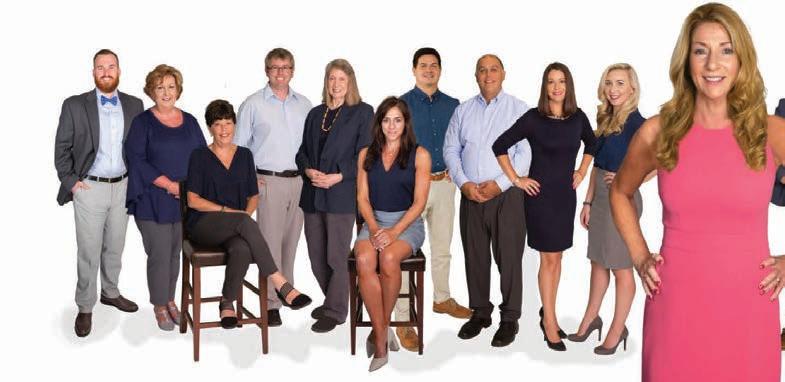


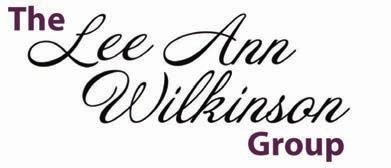


























HOLLYWOOD – David Archuleta is easily the sweetest of crooners. His warm, romantic, sweet voice has charmed a breadth of audiences for more than a decade, fi rst as a top contender on “American Idol,” and most recently with his boyish face completely hidden on the “Masked Singer.” In both competitions, he beat out dozens of massively talented singers to land in the No. 2 slot.
When he came in second on “Idol,” he got lost within the sea of confetti heralding David Cook as the winner. On the “Masked Singer,” when he lost to Bishop Briggs, he was all anyone was talking about, including by the winner herself.
When he was revealed as The Macaw, usually comedic judge Ken Jeong was brought to tears. Archuleta’s voice was personal to Ken. His “American Idol” rendition of “Imagine” had gotten the Jeong family through tough times. Reminding the world that David’s was the voice of an “angel” Ken told him, “You are a ray of light to me, my wife and to my kids — thank God for you!” In response, David shared his walk back from suicidal thoughts to coming out as queer. Then the rest of the audience, and winner Bishop Briggs, were also brought to tears. The Macaw may not have won the night, but David did.
David has always had his eye on love and compassion for all, even when he could not extend that courtesy to himself. His consideration came into play in his choices on how to present “Imagine” those many years ago. He had to decide which of the three verses of the song to perform.
He told me why he chose the third verse. “If I was only going to have one verse, and it was my last time being in front of an audience of that magnitude, I thought the song’s message was a lot bigger in that verse, avoiding lyrics where people usually get stuck on the words. I didn’t want them focusing on what the words were saying, I wanted them to see that the song talks about looking past differences, and just being one. Imagine a world of peace where there wasn’t fi ghting, there weren’t differences, there wasn’t division. That’s what I wanted to emphasize, and I felt the third verse did the best with that message, and was not going to turn people away, turn people’s hearts off, hearing trigger words like ‘Imagine there’s no Heaven’ it’s easy if you try.”
David is not about “no Heaven,” he is about bringing it to everyone.
David may have come in second in the highest profi le singing contests on the planet, but he refuses to come in second in his own life now. There, he is the hands-down winner. He makes that clear in his newest song release “Up.” Rising back into popular view from his period of darkness, the song declares that he is headed “Up, up, up up.”
David discussed with me the religious and mental health crisis from which he has emerged. He said, “Re-
ligion gives you a very structured view of life and of purpose…why you are here, and where you are going to go, who God is, and what God expects of you. Being raised and being told ‘what God thinks of homosexuality and gay people’ and that if you succumb to it, you are distancing yourself from Him. I tried so hard to do what I was told I needed to do and growing up a Mormon, I was told to call it ‘same sex attraction’ acknowledging that I had a ‘weakness’ or ‘challenge’ that I needed to overcome, and if I did not give into it, I would be OK.
and despite that, I realized it was just my nature. It was not even that I was trying to have sex with anyone, I just felt a bond and attraction to other guys—falling love or having a crush on someone. It led me to wanting to terminate my life. That ideology came from the way I was raised, from my religion, my spirituality as I saw it at that time.”
During his time of struggle, he even hid himself musically — he put out several outstanding Christmas albums. He released an album called “Therapy Sessions,” which highlighted, albeit veiled, his thoughts and struggles to suppress his sexuality.
He fi nally ended up throwing himself to God in a final prayer of desperation.
He recounted the experience, “When I tuned into that higher connection, I heard God say, ‘David, you need to stop asking me this, because you’ve been asking me this for over half your life and you can see, it’s not changing. You need to understand, I do not intend it to change. This is what I meant for you. You are supposed to be this way. You are meant to be happy the way you are. You are meant to connect with the people I designed you to connect with. It is not an error despite what well meaning religious people say, and understand.’”
David realized once and for all that he was not evil, that gay people were not evil. “There was an absolute clarity and assurance, absolute confi dence, so loving support from a higher power greater than me, that showed me how to love greater. It taught me to love myself and allow myself to be loved. It was pure, it was healing.”
The revelation gave him the confi dence to confront church leaders, to see through their “suggestions” and stand alone as his authentic queer self.
While cloaked in the Macaw, he walked the stage clearer and truer than ever, and at the unmasking, the world was seeing not just David Archuleta, but a David Archuleta it had not known before.
Now he is singing a new song, literally. The song is an anthem that can speak to every trans, LGBTQ+ kid or adult in the community.
More, it is a declaration of who David Archuleta is, and what we can expect from him.
“The only place
goin’
“When I realized that I was never going to ‘overcome this challenge of same sex attraction’ I looked at myself as not just inauthentic, but as a failure. Clearly, I thought if I was truly a righteous person, I would be able to change myself from this ‘wicked’ state. When I realized I couldn’t, I thought ‘I’m wicked’, and there was nothing I could do about that. It made me afraid of myself, and I did not want to be a ‘wicked’ person walking the earth. No matter how many times I tried, no matter how many times I tried dating a woman, I went to church and fasted, never looked at pornography,
Yes, Archuleta is back, winning, and this time, he is taking us with him.
Whether you are looking for a vibrant and spirited Independent Living lifestyle, an enriching Assisted Living and Memory Support neighborhood, or the peace of mind and security that comes with a Life Plan Community, Ingleside will exceed your expectations . Discover a rich and diverse community made up of interesting friends and neighbors, living an active and engaging lifestyle.
EXPECT MORE AT INGLESIDE.

INGLESIDE AT ROCK CREEK 202-999-4496 // www.ircdc.org
INGLESIDE AT KING FARM 240-414-8523 // www.ikfmd.org
Friday, June 23
Center Aging Monthly Yoga & Lunch will be at 12 p.m. at the DC Center for the LGBT Community. Lunch will be held in the climate controlled atrium at the Reeves Center. To RSVP for this event, visit the DC Center’s website.
Trans Discussion Group will be at 7 p.m. on Zoom. This event is intended to provide emotionally and physically safe space for trans people and those who may be questioning their gender identity/expression to join together in community and learn from one another. For more details, email supportdesk@thedccenter.org.
Women in Their Twenties and Thirties will meet at 8 p.m. on Zoom. This event is a social discussion group for queer women in the Washington, D.C. area. For more details, join WiTT’s closed Facebook group.
Saturday, June 24
Virtual Yoga Class with Jesse Z. will be at 12 p.m. online. This is a weekly class focusing on yoga, breath work, and meditation. Guests are encouraged to RSVP on the DC Center’s website, providing your name, email address, and zip code, along with any questions you may have. A link to the event will be sent at 6 pm the day before.
Black Lesbian Support Group will be at 11 a.m. on Zoom. This is a peer-led support group devoted to the joys and challenges of being a Black Lesbian. For more details, email supportdesk@thedccenter.org.
Sunday, June 25
AfroCode DC will be at 4 p.m. at Decades DC. This event will be an experience of non-stop music, dancing, and good vibes and a crossover of genres and a fusion of cultures. Tickets cost $40 and can be purchased on Eventbrite.
Pride in the Plaza will be at 12 p.m. at Veterans Plaza in Silver Spring, Md. This will be a celebration of love and authenticity as part of Montgomery County’s annual LGBTQIA+ pride festival. Attendance is free and more details are available on Eventbrite.
Monday, June 26
Center Aging Monday Coffee and Conversation will be at 10 a.m. on Zoom. LGBT Older Adults — and friends — are invited to enjoy friendly conversations and to discuss any issues you might be dealing with. For more information, visit the Center Aging’s Facebook or Twitter.
Queer Book Club will be at 6:30 p.m. on Zoom. The group will be reading the first and second volumes of “Heartstopper” by Alice Oseman. For more details, email supportdesk@thedccenter.org.
By TINASHE CHINGARANDEGenderqueer DC will be at 7 p.m. on Zoom. This is a support group on Zoom for people who identify outside of the gender binary, whether you’re bigender, agender, genderfluid or just not 100% cis. For more details, email supportdesk@thedccenter.org.
GoGay DC will host “LGBTQ+ Happy Hour” at 6 p.m. at Chadwicks. This event provides attendees with a chance to mingle, socialize and share community spirit in a splendid setting. Admission is free and more details are available on Eventbrite.
Job Club will be at 6 p.m. on Zoom. This is a weekly job support program to help job entrants and seekers, including the long-term unemployed, improve self-confidence, motivation, resilience and productivity for effective job searches and networking — allowing participants to move away from being merely “applicants” toward being “candidates.” For more information, email centercareers@thedccenter.org or visit www.thedccenter.org/ careers.
Asexual and Aromantic Group will be at 7 p.m. on Zoom and in person at the DC Center for the LGBT Community. This is a space where people who are questioning this aspect of their identity or those who identify as asexual and/or aromantic can come together, share stories and experiences, and discuss various topics. For more details, email supportdesk@thedccenter.org.
Emerging Architects Committee & WIELD Equity will host “Hi-visibility: LGBTQIA+ in Architecture, Engineering, and Construction” at 6:30 p.m. at Number Nine. This event will be an evening of networking and discussion on the intersection of LGBTQIA+ identities and the fields of architecture, engineering, and construction, and also a fundraiser for SMYAL. Admission is free and more details are available on Eventbrite.

Award-winning singer-songwriter Tom Goss will celebrate the release of his ninth studio album on Friday, July 7 at 8 p.m. at Union Square. Doors open at 7 p.m. His album, “Remember What It Feels Like,” presents 15 tracks that reflect on who Tom is today — a 42-year-old man who began life as troubled teen and wrestler, studied to become a priest but fell in love with a man and got married, then dealt with the heartbreak of infidelity and the challenges of an open marriage, and was most recently conned by a lover with a secret life who is now serving time in prison. The album will be released the day of the concert.
Tickets start at $20 and can be purchased on Union Stage’s website.
The Martin Luther King Jr. Memorial Library will open a new exhibition of Leonardo DaVinci’s drawings on Wednesday, June 21.
The exhibition, titled “Imagining the future. Leonardo da Vinci: in the mind of an Italian genius,” s spearheaded by Confindustria, the largest business association representing manufacturing and service companies in Italy, and under the curatorship of Alberto Rocca, director of the Pinacoteca Ambrosiana. Patrons include the Embassy of Italy in Washington D.C. and the Italian Cultural Institute of Washington D.C.
“With this exhibition, we want to narrate humanity’s ability to conduct business in an unprecedented way through a monumental and iconic work: a collection of futuristic projects by one of the greatest geniuses of humanity, father, and forerunner of innovations in the most disparate fields of art and knowledge: Leonardo da Vinci, the symbol of Italian talent and know-how,” said Carlo Bomoni, president of Confindustria in a press release.
For more details on the exhibition, visit the library’s website.


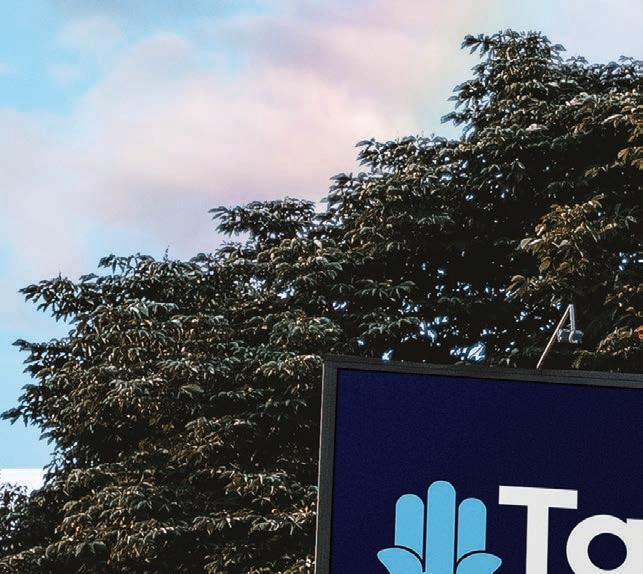
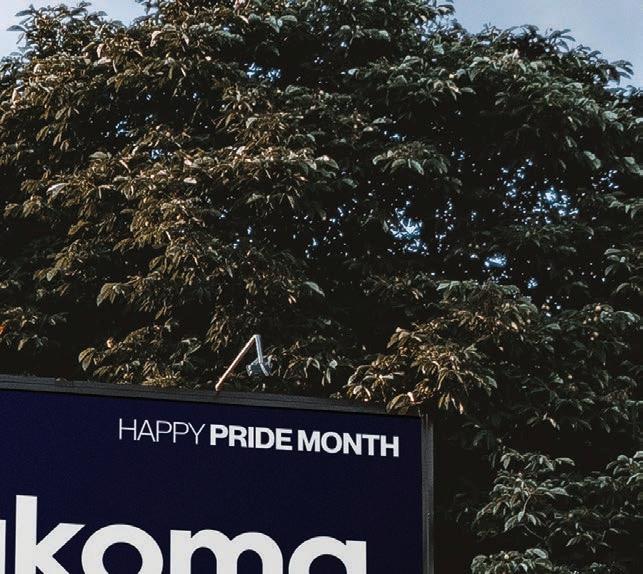
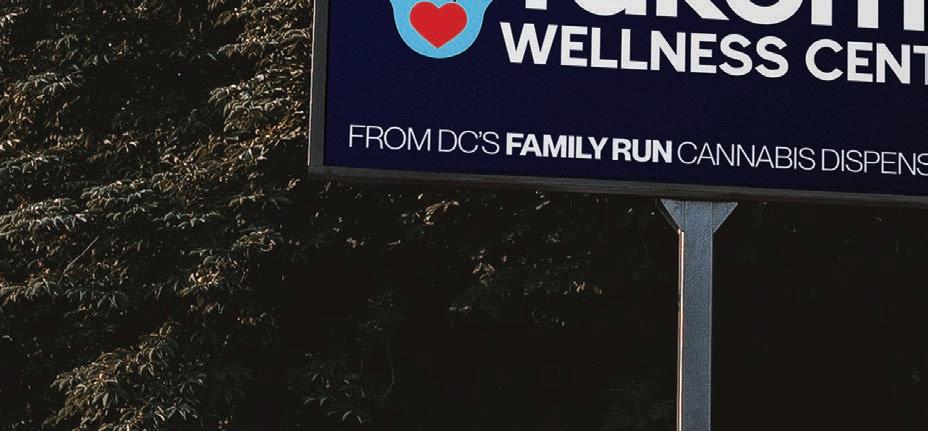

It’s not often that we at the Blade feel compelled to review a “big box” Hollywood franchise movie. That’s not a judgment; it’s just that such movies are made to please their intended audience, not the critics. Fans are going to like what they like, regardless of what we think.
But “The Flash” – the latest entry in the DC Comics movie franchise, officially open in theaters as of June 16 – is something different.
We don’t mean it isn’t a typical franchise film; in fact, much of the movie, a largely “standalone” film in the DC “Extended Universe,” falls predictably in line with the usual value-reinforcing melodramatic storytelling that drives almost every superhero film ever made. It follows the efforts of its title character – whose “real” identity is that of Barry Allen (Ezra Miller), a young forensic scientist working to prove his imprisoned father’s innocence in his mother’s murder – as he uses his superhuman speed to turn back time and attempt to prevent the incident that caused her death in the first place, against the advice of his friend and Justice League mentor Batman (Ben Affleck, reprising the role). Of course, things don’t go as smoothly as planned, and Barry inadvertently thrusts himself into an alternative timeline where his mother’s survival is only one of many significant –and potentially catastrophic – changes. He’s forced to team up with his own younger self (also Miller) – as well as an iteration of Batman (Michael Keaton, also reprising the role) – to set things right, which not only involves finding a way back to his own strand of the multiverse, but helping to prevent an apocalypse he has inadvertently caused in the new one.
As an installment in the larger tapestry being woven-asthey-go by the DCEU, “The Flash” represents a considerable departure in the sense that it takes a much lighter tone than the edgy darkness that has marked the franchise ever since it was launched with filmmaker Zack Snyder’s “Man of Steel.” Snyder’s dark vision for the characters and storylines was a point of contention with both the studio and fans from the beginning, ultimately leading to the debacle of 2017’s “Justice League” – a notorious box office flop after being retooled by director Joss Whedon following Snyder’s departure from the project in the wake of a family tragedy – and divisive opinions from DC fans over the incongruity between styles. A later “director’s cut” by Snyder (released in 2021), though greeted with a friendlier response, nevertheless elicited widely varied opinions from fans about which approach they preferred.
With “The Flash,” however, the franchise has fully embraced the lighter touch. As directed by Andy Muschietti from Christina Hodson’s screenplay, it wastes no time in establishing a tongue-in-cheek, self-referential style, play-
ing Barry’s initial adventure of the film – dealing with the collateral damage from Batman’s over-the-top capture of a would-be bio-terrorist – mostly for giddy laughs. It’s a sequence, which, had he had the technology to make it happen, would have seemed right at home in one of Buster Keaton’s elaborately slapstick silent comedies.
That comedic thread runs throughout, giving the film an almost camp sensibility (not the accidental kind, but the truly delicious, intentional variety) and an overall buoyancy that gives it more in common with the lightweight superhero movies of the past than with Christopher Nolan’s “Dark Knight” trilogy or the “Avengers” films – though it’s worth noting that it occasionally evokes comparison with Taika Waititi’s near-farcical “Thor” movies. Indeed, at times, it feels almost like a winking parody of the genre itself, using the familiar cliches and conventions – as well as the now-obligatory fan “Easter eggs,” here taken to an exponential level by the waggish return of Keaton’s iconic Batman (performed with obvious relish in a standout supporting turn), not to mention quite a few other “surprise” nods to former iterations of the DC film canon – not only to make fun of superhero movies in general, but sometimes even to troll the audience itself.
This, of course, may not sit well with fans who favor a more solemn and serious approach to the material; but “The Flash” still takes itself seriously enough to deliver a story which, though hardly original (again, part of the movie’s deliberate “meta” underpinnings), provides enough drama, action, and reasonably solid character development to satisfy audiences more interested in rooting for their comic book heroes than laughing at them – though it must be mentioned that some of the special effects look oddly rudimentary, especially in comparison with the impressive seamlessness of the film’s many “double Barry” scenes. In addition, it’s clever enough to use its exploration of time travel as a just-subtleenough analogy for managing – or rather, coming to terms with – the consequences of our actions in the real-life corner of the multiverse we’re seemingly stuck with, and that goes a long way toward making the whole thing feel like much more than juvenile wish-fulfillment fantasy.
None of these, however, is why “The Flash” feels noteworthy to the Blade; for many of our readers (the non-superhero fans among them, anyway), its point of interest likely lies in its star. Miller – the first out nonbinary person to play the lead role in a major superhero franchise film. Recognized for their intelligence, intensity, and imagination since an early career that included breakout roles in “We Need to Talk About Kevin” and “The Perks of Being a Wallflower,” they bring those gifts to the table in full force here, playing two versions of the Flash opposite themself with what seems like effortless grace and precision – apt adjectives to describe a performance that also highlights their skill as a physical performer. It’s an engaging, endearing tour-de-force that arguably carries the film on its own strength; and as a bonus, the inclusion of out actress Kiersey Clemons as the Flash’s love interest lends a welcome sense of queerness to the pairing that enhances, rather than undermines, their chemistry together.

Yet Miller’s triumph might be bittersweet; their well-publicized unstable conduct offscreen – about which we won’t go into detail here, save to say that it involves arrests and citations for harassment, assault, and burglary, as well as accusations of even more troubling behavior – has rendered them a liability for the DC franchise, which reportedly considered shelving the film before its star apologized for their actions and agreed to enter treatment for mental health issues. Their continuation in the role for future films – and likely also in their acting career – hinges on the success of that treatment.
Though it’s understandable that many DC fans might object to Miller’s participation in the franchise due to the nature of some of the allegations against them, “The Flash” is ample evidence of both their exceptional talent and their star appeal. Queer representation aside, it would be a true loss for them to be derailed by mental health, and we, like all their other fans, are pulling for Miller.
In the meantime, the best way to show support might just be to go see “The Flash” – which is smart and entertaining enough to be enjoyed even by those who don’t like superhero movies, and possibly loved by those who are.


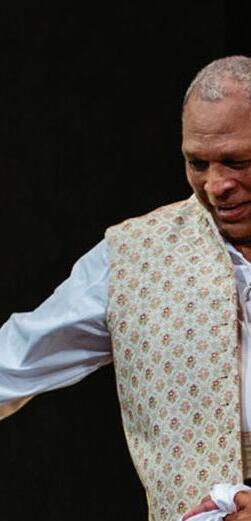



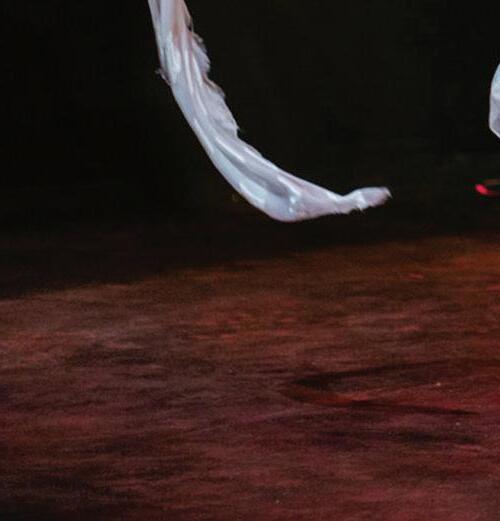



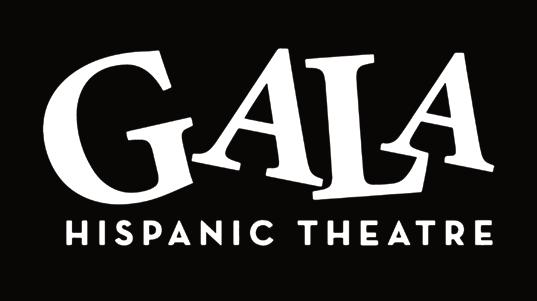
You likely wouldn’t want to hang out with cranky characters who obsess about money, bemoan the art they make and live in a place where the winter is brutal and even the elm trees are diseased.
Yet, in “The Late Americans,” acclaimed Black, queer author Brandon Taylor, makes you care about a group of often unlikable, isolated, unhappy people. These characters smoke too much, cheat on their lovers and are so freaking hard on themselves, their friends and their art.
“The Late Americans” is set in Iowa. Most of the characters are graduate students at the University of Iowa along with some “townies” (people who aren’t students and live in the town). Most of the grad students are poets, fiction writers, dancers, and musicians working toward master’s degrees. Others are studying finance or math. The “townies” work on farms, factories, and stores.
“The Late Americans” is a campus novel. But don’t be fooled. You won’t find students canoodling, savoring the bright blue sky, engaging in congenial dorm bull sessions or writing poems about blue herons.
Taylor, whose first novel “Real Life,” was shortlisted for the prestigious Booker Prize, has given us a campus novel filled with the complex realities of our time: racism, sexism, 21st century capitalism and classism. Many of its characters have experienced the impact of the 2008 recession. Donald Trump is referenced.
It’s usually ill-advised to believe that fiction is closely linked to the lives of authors. Narrators can be unreliable and writers create imaginary worlds. “The Late Americans” isn’t auto fic-
tion. But its setting seems to be modeled on the Iowa Writers’ Workshop, where Taylor got an M.F.A. degree. This doesn’t make “The Late Americans” an autobiography or detract from Taylor’s work. It adds authenticity to the bleak, but, captivating universe Taylor has imagined.
While writing “The Late Americans,” Taylor told The Guardian he was inspired by Jane Austen, Edith Wharton, Anton Chekhov and other 19th century writers. Taylor said he was “deeply reading” 19th century novels with their “broad casts of characters from all kinds of classes,” the paper reported.
“The Late Americans” works well as a novel but is structured like a group of linked short stories. Each chapter is focused on a different character. But the characters intersect throughout the novel. Most of them know each other to some extent. They’re lovers, co-workers, friends, and classmates.
Taylor has said that writing short stories is his sweet spot. His second book “Filthy Animals” is a superb collection of linked short stories.
It’s hard to pull off a novel that wants to be linked short stories but Brandon nails it in “The Late Americans.”
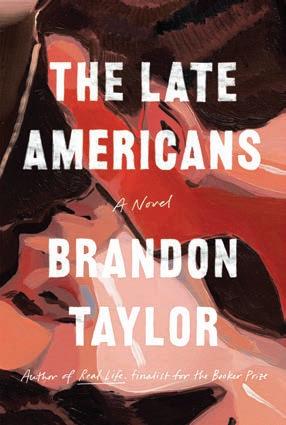
The novel opens with a chapter devoted to Seamus, a white working class poet who works in a hospice kitchen to pay for his graduate work. He’s ashamed of being gay, has furtive sex and deplores what he thinks of as the veneration of victimhood along with the ridiculousness of elitist poets and artists. “Miserable despite the praise,” Taylor writes of the poets in a poetry seminar, “when praise seemed so much the point of the poems they wrote.”
“Curiouser and curiouser, thought Seamus,” Taylor writes,
“that a person, presented with what they wanted most, could seem so miserable about it.”
You’d need a seating chart worthy of a White House state dinner to follow all of the goings-on of these characters. But don’t let that worry you. As you read, you’ll find yourself going along with the flow.
There’s Frydor who’s Black and works in a meatpacking plant. His vegetarian boyfriend Timo, who’s from a Black middle-class background, endorses the death penalty. Gordon, a rich musician, is coupled with Ivan. Ivan, to Gordon’s embarrassment, makes sex tapes to support himself.
“Money is like an animal,” thinks Fatima, a Black woman who works as a barista so she can study dance, “changeful and anxious, ready to flee or bite.”
Despite barriers of race, class and economic hardship, the characters in “The Late Americans” bond in friendship and their love of art, and find glimmers of hope for their future.
You can’t ask for more from a novel.
On Sunday, July 2, the Thai Embassy is hosting Sawasdee DC on the National Mall to celebrate 190 years of diplomatic relations between Thailand and the United States. With a star-studded line-up of performers, delicious food vendors, and ample activities to enjoy, it’s sure to be a festival unlike any other.
Sawasdee DC will take place from 10 am to 6 pm, on 3rd/4th Street of the National Mall. It features Thai pop performers, New Orleans Jazz music, Thai massage, traditional food and dance, a Muay Thai demonstration, and more.
Here are three reasons we are especially excited for Sawasdee DC!
1. Dance to Thai pop’s first LGBTQ+ group among a star-studded musical lineup
Thailand’s first LGBTQ+ pop group, 4mix, will take to the stage for their first performance in Washington, DC. Their upbeat music, affirming lyrics, and gender non-conformity have made 4mix explosively popular among fans. Since their debut in May, 2021, the band has taken the music world by storm, with a fanbase that stretches from Thailand, to Latin America, and beyond.

4Mix is just one of many talented performers on the Sawasdee DC lineup. The Thai pop singer Ally will make her Washington, DC debut, too, and Wendell Brunious will lead the New Orleans Quintet in a performance to honor the late Thai King Bhumibol Adulyadej.
King Bhumibol Adulyadej was a lover of jazz music and composed dozens of jazz songs himself. Brunious, who once performed for King Bhumibol Adulyadej, will play a selection
of songs written by the late king. For this reason, Brunious’ performance at Sawasdee DC will be especially meaningful.
2. Pick up some Muay Thai tips from Thailand’s most famous kickboxer
Musicians won’t be the only stars to grace the Sawasdee DC stage. Buakaw is joining the lineup of performers for a Muay Thai demonstration in his first appearance in Washington, DC.
Buakaw has earned global renown for his championship-winning Muay Thai, and is considered one of the best kickboxers in Thailand’s history. With a career spanning more than 290 wins and several championship titles, Buakaw is known for his work ethic and credited with Muay Thai’s recent growth in global popularity.
The Thai Embassy is thrilled to welcome this kickboxing legend to the District for the first time!
3. Celebrate many different aspects of Thai culture
Food, traditional dance, Thai massages — you name it! Sawasdee DC will feature a wide range of entertainers, vendors and activities that celebrate Thai culture.

Throughout the performances, an array of delicious food vendors will prepare a wide variety of traditional Thai dishes for attendees to enjoy as they watch traditional Thai dancers and other performing artists. Afterward, explore the broad range of activities at Sawasdee DC, including a Thai massage.
Want to learn more about the festival? Visit www.sawasdeedcthaifestival.com for a closer look at the fun that awaits at Sawasdee DC. We can’t wait to see you there!
Sawasdee DC brings an array of music, food, dance, performers, and more to the National Mall to celebrate Thai and U.S. culture.
(Graphic provided by the Thai Embassy)
4mix, Thailand’s first LGBTQ+ pop group, will take to the stage at Sawasdee DC.
(Photo provided by 411 Records)
Thailand’s most renowned kickboxer, Buakaw Banchamek, will perform a Muay Thai demonstration as part of Sawasdee DC.

(Photo provided by C.P. Group)
A delicious range of traditional Thai dishes will be available to try at Sawasdee DC.
(Photos provided by the Thai Embassy)

This Independence Day weekend, you’ll be happy you stayed in town. paid advertising
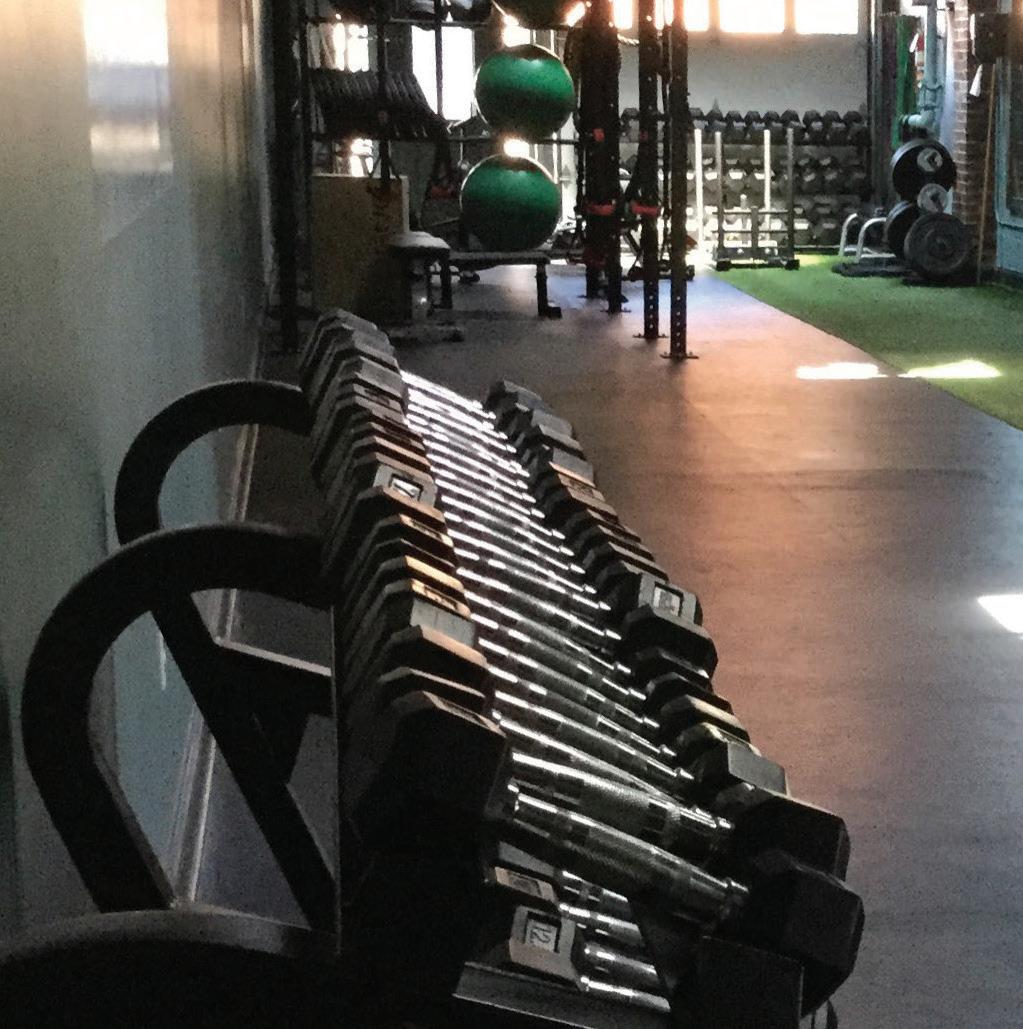



You cannot beat a vacation in San Diego and there is always something fun and new going on in the city, including the vibrant Hillcrest gayborhood (fabuloushillcrest.com). The city of 1.4 million borders Mexico and is built on mesas surrounded by canyons on the Pacific Ocean. Interesting neighborhoods and parks will keep you busy. The climate is mild, so any month is perfect for a visit given the climate. The city combines the best of Southern California combined with a strong Mexican influence given the proximity to Tijuana.
Don’t miss the Farmers Market Sundays in Hillcrest Sundays from 9 a.m.-2 p.m. Enjoy the Southern California strawberries and dates. I had salmon for lunch. There are lots of local vendors. You will find them on Normal Avenue between Lincoln and University Avenue near the rainbow flag.
On Saturdays, the city’s other large farmers market in Little Italy is also very popular. Little Italy is a cute neighborhood near downtown with lots of trendy restaurants and shops. (Details at littleitalysd.com).
Hike up Maple Canyon and enjoy the native vegetation on Bankers Hill.
See the rarest pine in the world, the Torrey Pine, and enjoy the wildflowers and views from bluffs overlooking the Pacific Ocean at the Torrey Pine Natural Reserve just north of La Jolla. You will also see the beaver tail prickly pear cacti, yuccas, cholla cactus, manzanitas, and native wildflowers. To get there without a car (and to avoid the $25 parking charge), take the Blue Line MTS trolley (light rail) to La Jolla (Noble Drive Station) and then catch the 110 North County Coaster bus to Torrey Pines Beach. The bus ride goes through the UCSD campus and is interesting. (See SDMTS.com)
Once at the beach, walk up the hill going south into the preserve and enjoy the Guy Fleming loop trail, which features stunning views of the ocean and the rare and unusual Torrey pines, which are found only here and on Catalina Island. These rare and endangered pines are found nowhere else on Earth except these two small locations. Plan your trip at torreypines.org.
Then enjoy the Torrey Pines or Blacks beaches. Then catch the 101 bus back to La Jolla and enjoy fish tacos at Rubio’s Coastal Grill (Nobel and La Jolla Drive) and a fresh carrot juice at the Nektre Juice Bar (8855 Villa La Jolla Drive).
Walk along the bay at the trails on Harbor Island near the Sheraton. It’s just over a mile to the Liberty Public Market, a new food hall that had been a Navy Mess Hall at the former Navy training facility. It also features museums and an Arts District. Try the craft beer at Bottlecraft or craft cocktails at Mess Hall. There are local clothing, soap, and jewelry vendors as well. Pick up some homemade soap at the Old Town Soap Company. You will find Liberty Station at 2820 Historic Decatur Rd. (libertypublicmarketsd.com). They are celebrating 100 years. On the way back, stop at Spanish Landing, the site where California was discovered in the 1500s by Cabrillo, a Spanish explorer. Visit the North Park neighborhood. Take in a drag and dinner show at Lips on El Cajon Boulevard. Stop by the Eagle Bar.
Balboa Park includes museums as well the San Diego Zoo. It is a must for first-time visitors.
For more ideas, visit www.sdmts.com/escapes (the Metropolitan Transit System website). Enjoy a car free, carefree stay.
You cannot beat the selection of bars, restaurants, and shops in Hillcrest, one of the
best gayborhoods in the world.
I stumbled on a fun Saturday night show featuring drag, strippers, and burlesque at Urban Mos in Hillcrest. The strippers and bottomless Mimosas on Sunday were a hit. They also have great food. I loved the fries.
Richs is always fun as is Flicks, the latter of which has an all-day happy hour on Tuesday. Number One has a DJ on Sunday afternoons. You can dance on the patio. The Loft is a fun neighborhood bar.
This was my second stay at the Sheraton Hotel and Suites on the marina near the airport on Harbor Island. It’s a quick Uber to Hillcrest or take the 922 MTS Bus downtown, Union Station, and the attractions. Get a room in the main tower facing downtown and the bay. Check Trip Advisor for other hotel ideas. However, there are few lodging options in the Hillcrest.
I took the Southwest nonstop from Indianapolis. You don’t need a rental car as San Diego has great transit. MTS runs the trolley system (aka light rail). Plus you can walk everywhere in this fairly compact city if you stay around Hillcrest, Downton, Old Town, and the Gas light District.
Visit San Diego listed all the new attractions, hotels, and happenings for summer in San Diego. As for Hillcrest, San Diego will be celebrating with the San Diego Pride Parade , one of the largest in the country, with over 300,000 attendees July 8-16.
San Diego has a bad homeless problem, and many are mentally ill. I was attacked at 8th Avenue and Hillcrest while walking down the sidewalk at 5 p.m. on a Sunday. The psychotic looking shirtless man tried to steal my day pack and then pulled me. Fortunately, Mayor Todd Garcia pushed through a new ordinance banning public camping by the homeless to deal with the problem.
San Diego has prohibitive costs including hotel rates. Book your hotel before you book your air. You may want to avoid the peak summer season where folks from Phoenix flee here to escape the summer heat. And beware of annoying resort fees.
Although you are close to Tijuana, Mexico, it is unsafe to visit at this time.
There are four publications you can find at the bars or online to help you plan your trip:
• LGBTQ San Diego County News (LGBTQSD.news) is a newspaper covering the community.
• RAGE Monthly covers all of San Diego. (rage.lgbtq)
• GedMag.com (GED Magazine) is a Palm Springs magazine distributed in San Diego.
• Metro Magazine is a New York publication that publishes a Los Angeles edition.
You cannot beat a trip to San Diego, with a perfect climate and set on mesas above canyons. There is always something new to do. And it has something for everyone.
(Bill Malcolm is a syndicated LGBTQ value travel columnist. His column is now carried in LGBTQ publications in Toronto, Seattle, Chicago, Washington, D.C., and Dallas.)













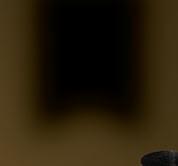




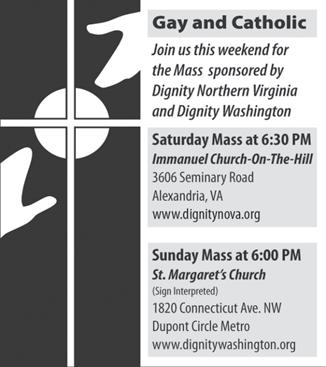
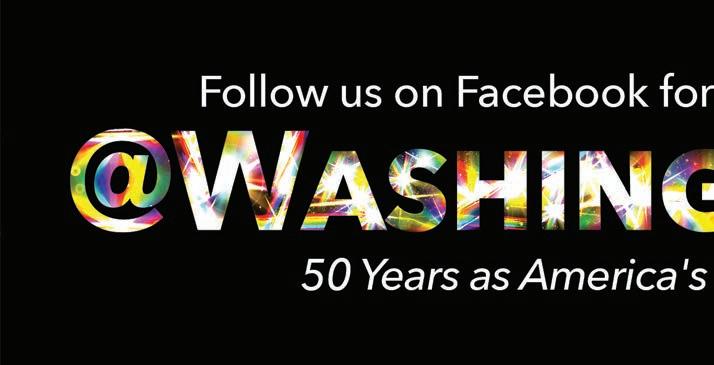
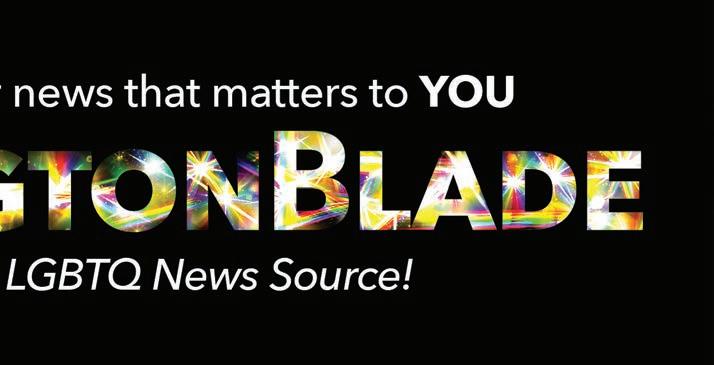
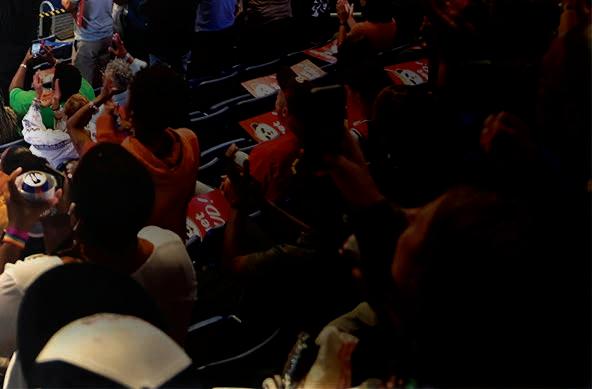

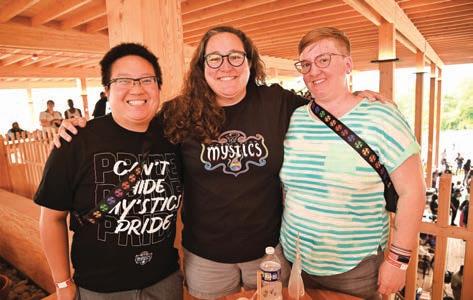
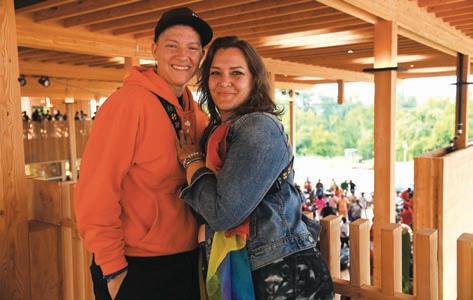
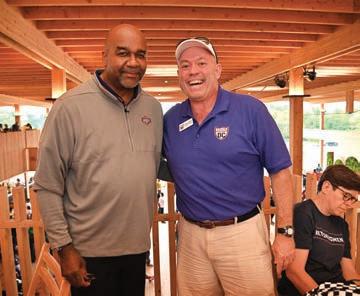

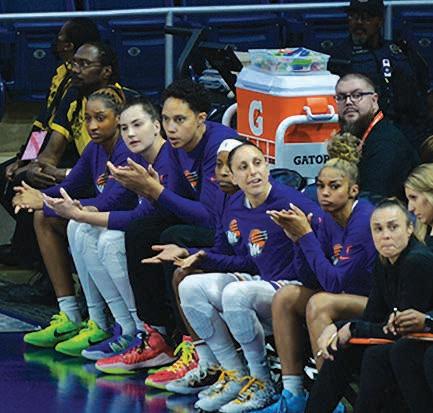
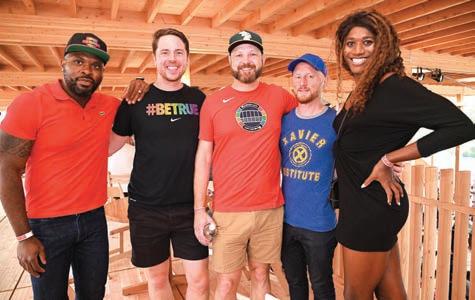
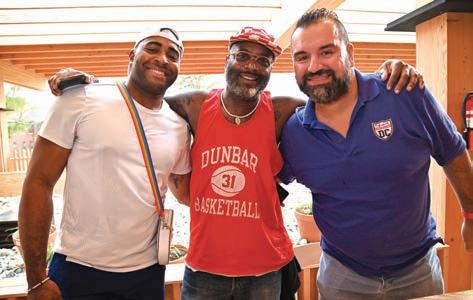
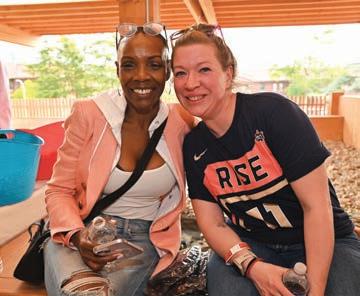
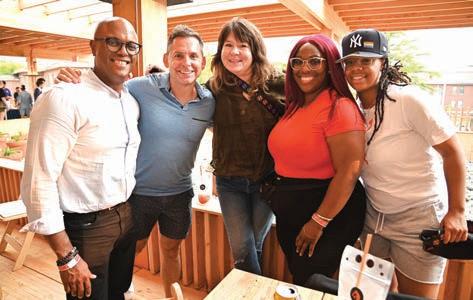
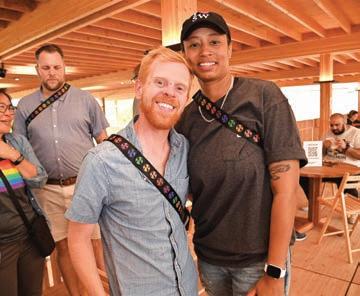
(Washington Blade photos by Michael Key)


The umbrella LGBTQ sports organization Team DC sponsored a Pride event at the Washington Mystics game on Friday, June 16 at the Entertainment & Sports Arena. Team DC held a pregame tailgate party at the newly-opened Sycamore & Oak before the game. The WNBA game between the Mystics and the Phoenix Mercury also marked the return of out athlete Brittney Griner to a Washington, D.C. basketball court. The Washington Mystics defeated the Phoenix Mercury 88-69.



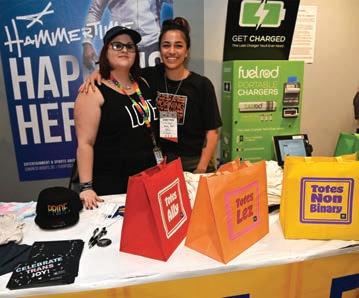

Typically, we agents talk about the real estate cycles in this area as having a “spring market” and a “fall market,” meaning that usually more homes come up for sale in the spring and fall, and more buyers hit the streets at that time looking for their first or next home.
Many factors can affect this cycle – weather, election years, and interest rates are just a few of the factors that can interrupt the cycle. This year, the interest rates have been higher in the spring than they were for the past several years. I am hearing more reports from agents that
By JOSEPH HUDSONtheir buyers might be waiting. Well, the waiting game can’t last forever. As the public gets more used to the higher rates of late, and the fed seems like it has temporarily paused the next rate hike, I am hearing from agents that this summer still could be a good time to buy and sell.
Frequently in the DMV we hear that August (and sometimes July) can be “dead months” where most of the people are at the beaches, lakes, mountains, avoiding the heat, or want to have already moved by the end of the




summer as the school year approaches. This year some sellers will be wanting to sell a home they held off on selling last fall and spring. Some buyers will finally be ready to purchase after holding off due to the change in rates, or the end of an costly lease approaches.
There can still be a decent window for buyers to browse the market and find the next home for themselves, and sellers can maximize the eyes on their listing by putting it up for sale BEFORE Labor Day weekend. If a buyer is looking at homes over the summer, the chance that they are already pre-approved, seriously looking, and ready to put in an offer could be high. Brooke Lowry, a local lender with Atlantic Coast Mortgage has this to say regarding interest rates and home purchases in the next few months:
“There is still a lot of room for mortgage rate improvement. Most mortgage and real estate professionals are expecting a meaningful dip in rates. But homebuyers shouldn’t wait for rates to drop to buy a home for several reasons:
(1) you can’t time the market,
(2) when rates drop demand is expected to increase, making prices increase and the market more competitive, and
(3) your loan can typically be refinanced if rates drop after closing.
If you’re comfortable with your monthly payment, go ahead and buy. I would urge anyone who is buying right now to get a commitment from their lender to help them monitor the market for refinance opportunities after closing.”
If you or anyone you know is looking to make a move this summer, please don’t hesitate to reach out and find out your options for buying, selling, or both.
JOSEPH HUDSON
is a Realtor with the Rutstein Group of Compass. Reach him at 703-587-0597 or joseph@dcrealestate.com.
Not everyone leaves town for the beach in summer. This could still be a good time to buy or sell in the DMV as interest rates are predicted to drop.
Why might July, August be a good time to buy or sell in the DMV?




DEPARTMENT OF SMALL AND LOCAL BUSINESS DEVELOPMENT NOTICE OF PUBLIC HEARING AND PRELIMINARY FINDING
Re-Registration of The Dupont Circle Business Improvement District
Notice is hereby given that, pursuant to section 19 of the Business Improvement Districts Act of 1996, effective May 29, 1996 (D.C. Law 11-134; D.C. Official Code § 2-1215.18) (“Act”), the Department of Small and Local Business Development (DSLBD) will hold a public hearing on the re-registration of the Dupont Circle Business Improvement District.
The public hearing will be held at 9:00 am on Thursday, June 29, 2023 in Suite 850N, 441 4th Street, NW, Washington, D.C.
DSLBD Director Kristi Whitfield has informed the Dupont Circle Business Improvement District that the filing criteria set forth in D.C. Official Code § 2-1215.18 have been met and their application is otherwise in conformity with the Act.
The BID application is available for review by the public during normal business hours on weekdays at 1601 Connecticut Avenue, N.W., Suite 502 in the offices of the Dupont Circle Business Improvement District; and online at https://dslbd. dc.gov/noticeofpublichearing.
DSLBD invites the public to testify at the public hearing. Witnesses should bring a copy of their written testimony to the hearing. Additional written statements may be submitted by e-mail to Lincoln.lashley@dc.gov or mailed to: Lincoln Lashley, DSLBD, 441 4th Street, NW, Suite 850N, Washington, DC 20001.
The public hearing record will close ten business days following the conclusion of the hearing, or Thursday, July 13, 2023 before 5:00 p.m. Persons submitting written statements for the record should observe this deadline.
Massage for active adults. Private studio near Rosslyn. Fri-Mon, 12-8. text 301-704-1158 or visit http://www.mymassagebygary.com

FERNANDO’S CLEANING
Residential & Commercial Cleaning, Reasonable Rates, Free Estimates, Routine, 1-Time, Move-In/Move-Out

202-234-7050 / 202-486-6183



People Individual/couple counseling with a volunteer peer counselor. GMCC, serving our community since 1973.
202-580-8661
gaymenscounseling.org No fees, donation requested.
Local licensed company with over 25 years of experience. Specializing in bathrooms, kitchens & all interior/exterior repairs. Drywall, paint, electrical & wallpaper. Trevor 703-303-8699


legal services. Jennifer represents LGBTQ clients in DC, MD & VA interested in adoption or ART matters. 240-863- 2441

JFairfax@Jenniferfairfax.com
SHARE & PERSONAL ADS ARE FREE!
PLACE YOUR AD ONLINE AT WASHINGTONBLADE.COM/CLASSIFIEDS AND THE AD PRINTS FREE IN THE PAPER AND ONLINE.* *25 words or less print free. Each additional word $1.00.
KASPER’S LIVERY SERVICE
Since 1987. Gay & Veteran Owner/Operator. Lincoln Continental Sedan! Proper DC License & Livery Insured. www.KasperLivery.com

202-554-2471
PROFESSIONAL MOVING & STORAGE
Let Our Movers Do The Heavy Lifting. Mention the Blade for 5% OFF of our regular rates. Call today
202.734.3080
www.aroundtownmovers.com
JESSE FROM MARYLAND,
I asked to take your pic before the Gay Pride Parade Sat at 15th and P Streets. You have a Mohawk cut with long hair in back, and wore a Pride airplane necklace, arm bands, yellow trunks and black boots. Sorry I didn’t offer to send the pic to your phone and now I don’t know how to contact you. Please write David at pipe_guy@hotmail.com.
Happy Pride!!
WHO ARE YOU LOOKING FOR?
Place your ad today! Need assistance? Email: classifieds@washblade.com.
THE MAGIC TOUCH
Swedish, Massage or Deep Tissue. Appts. Low Rates, 24/7, In-Calls. 202-486-6183
202.882.1648










